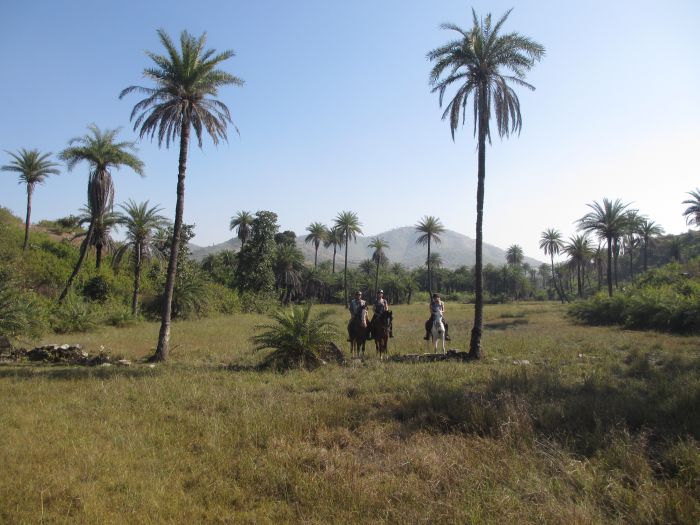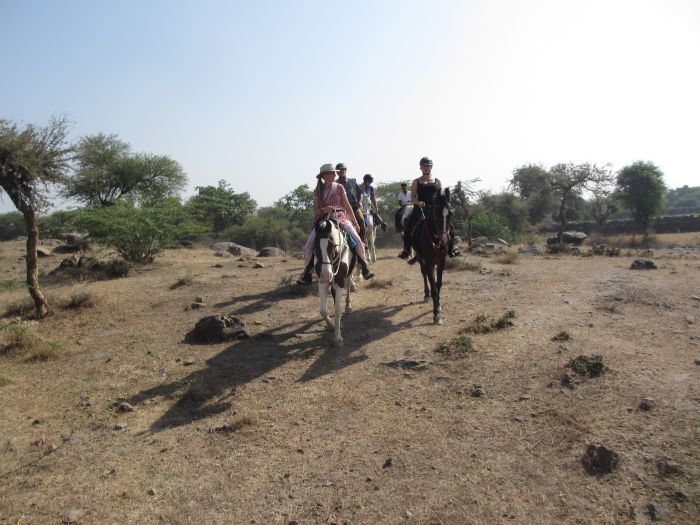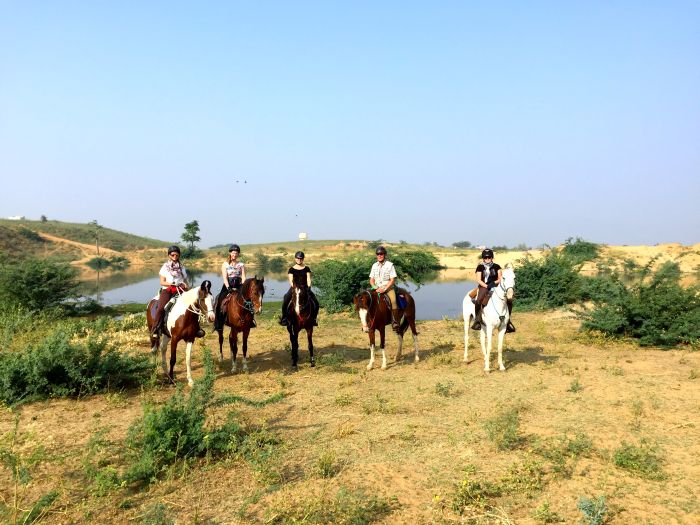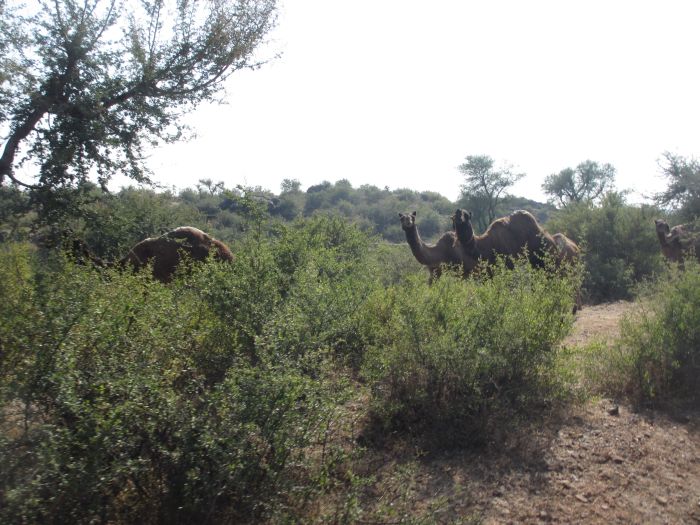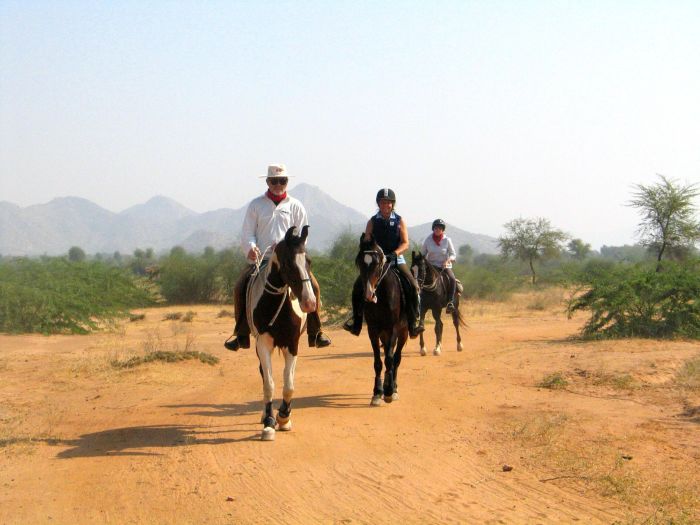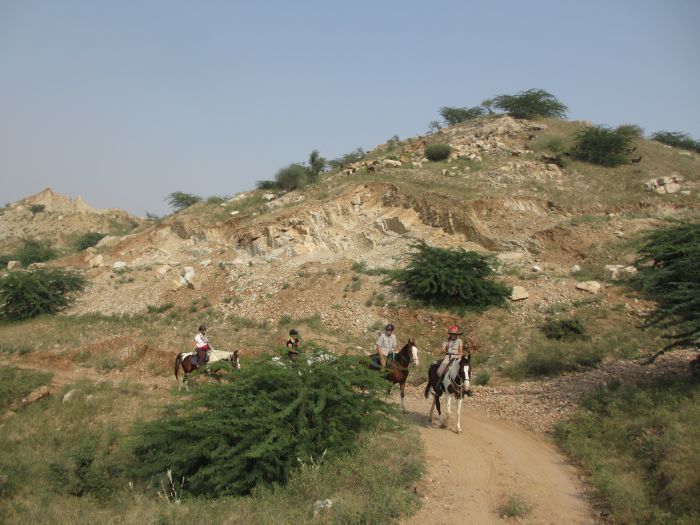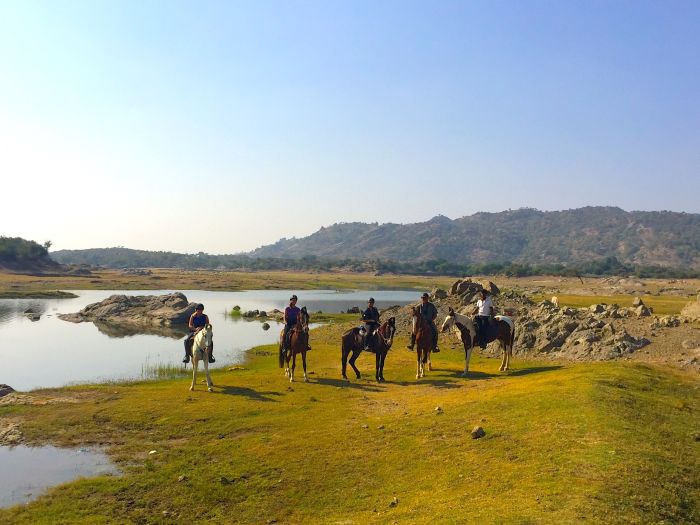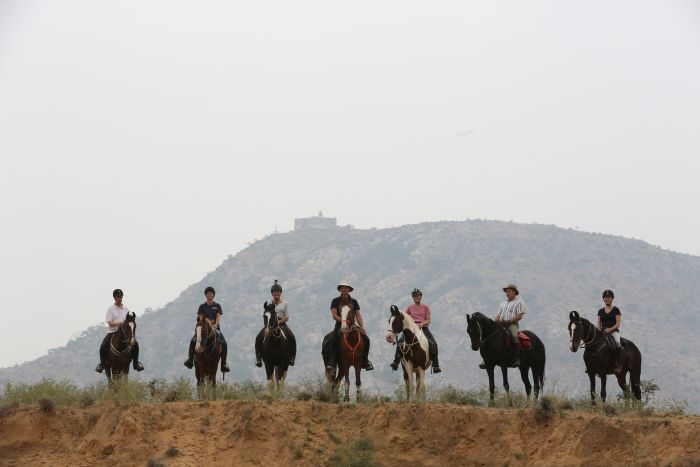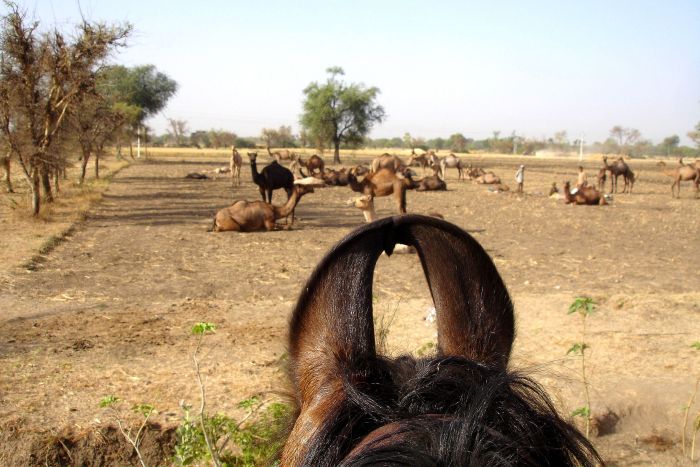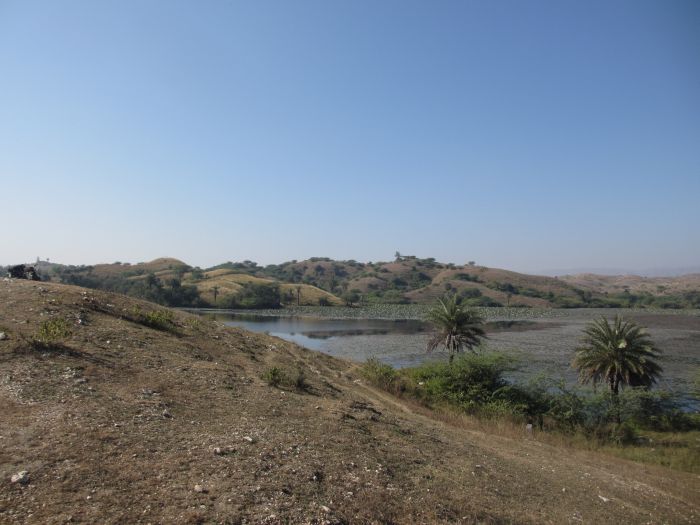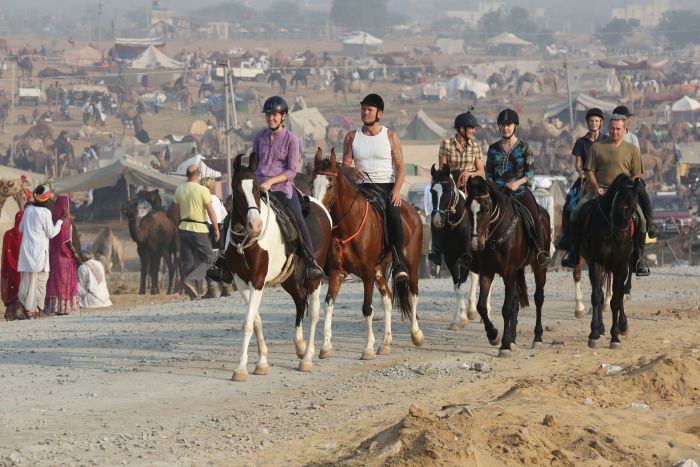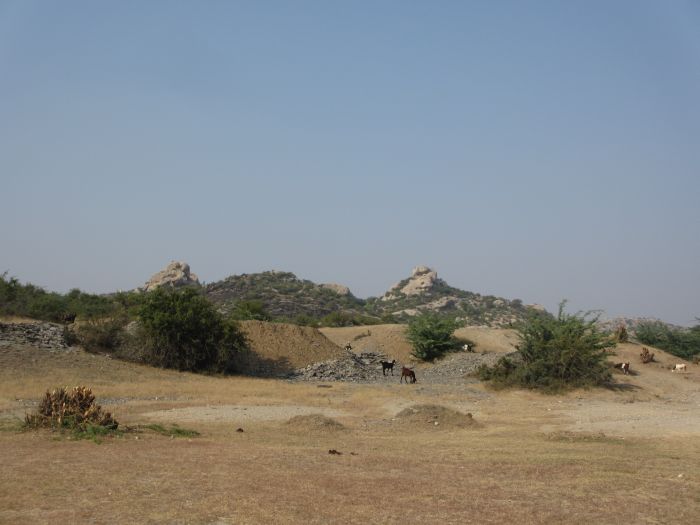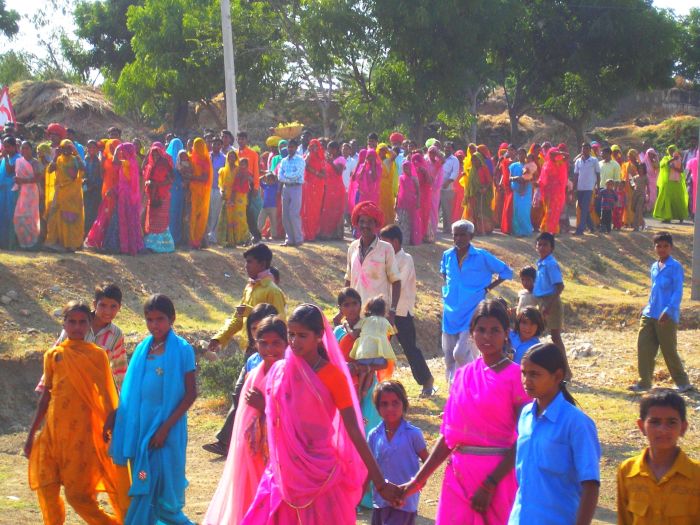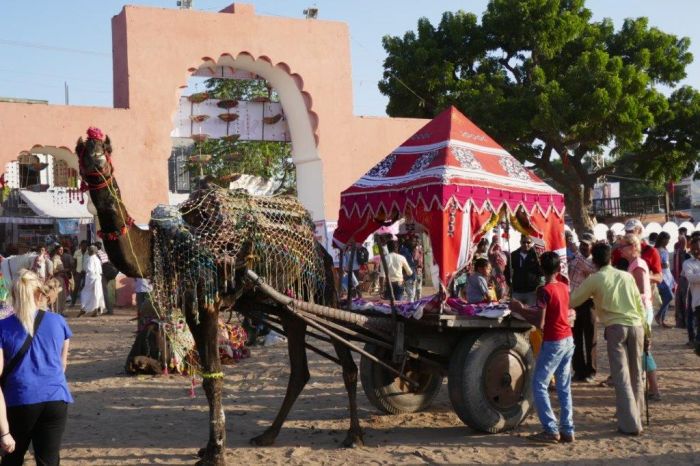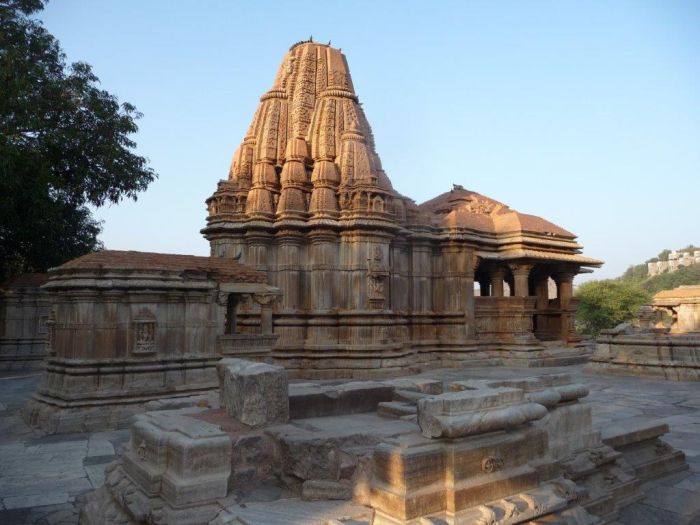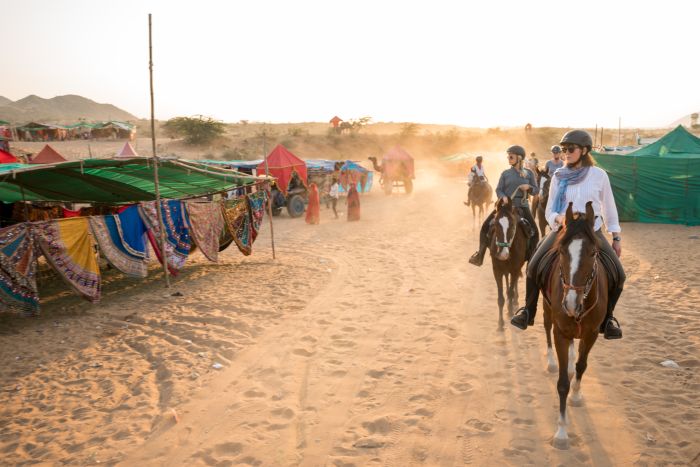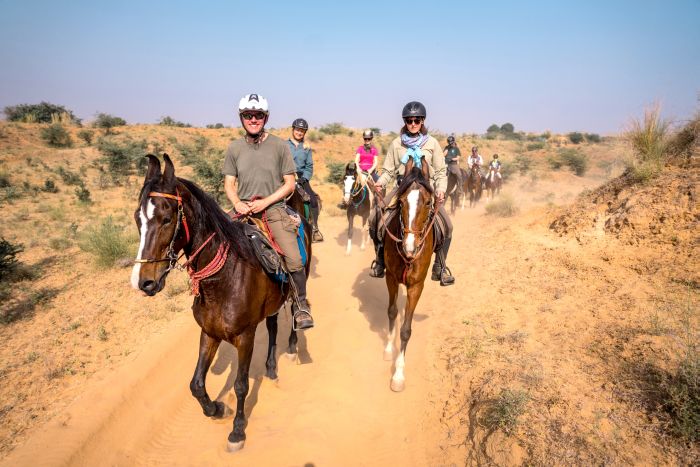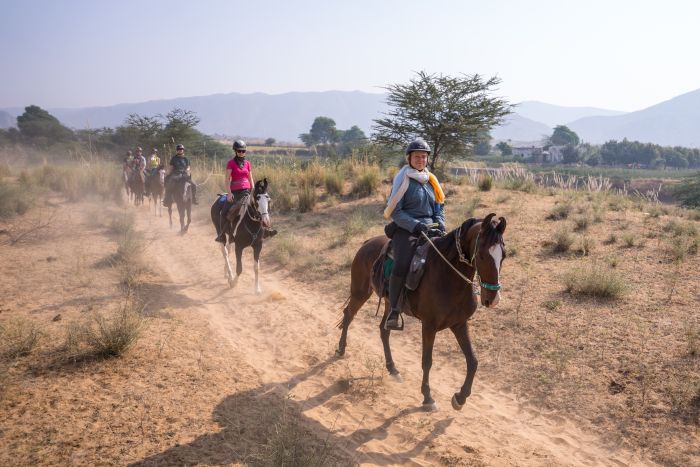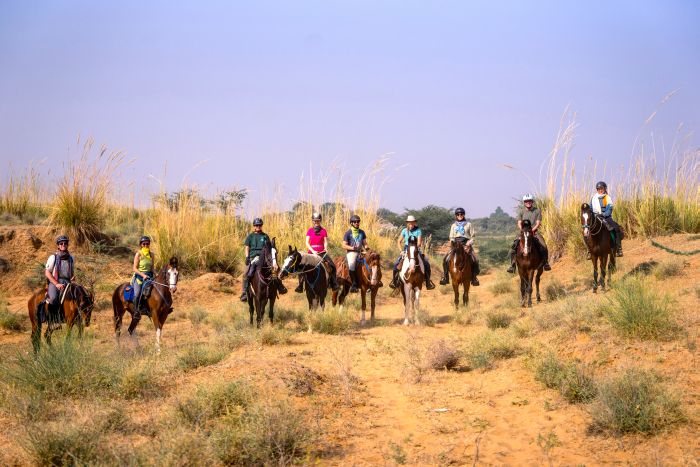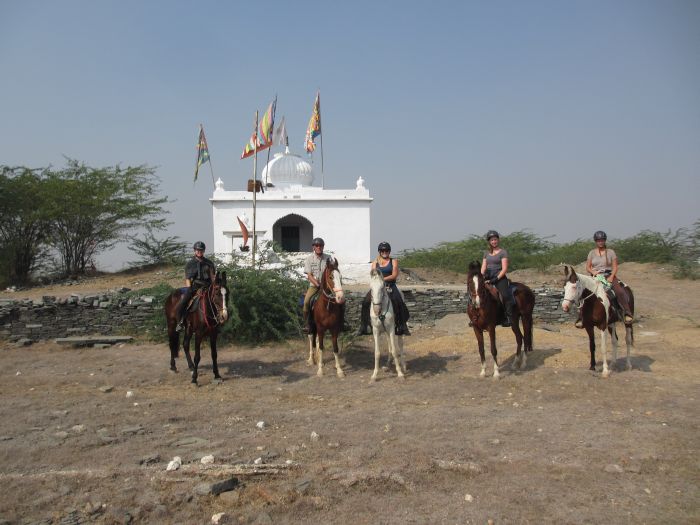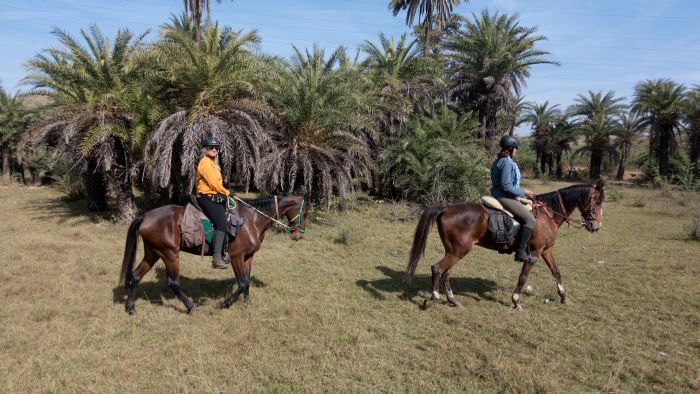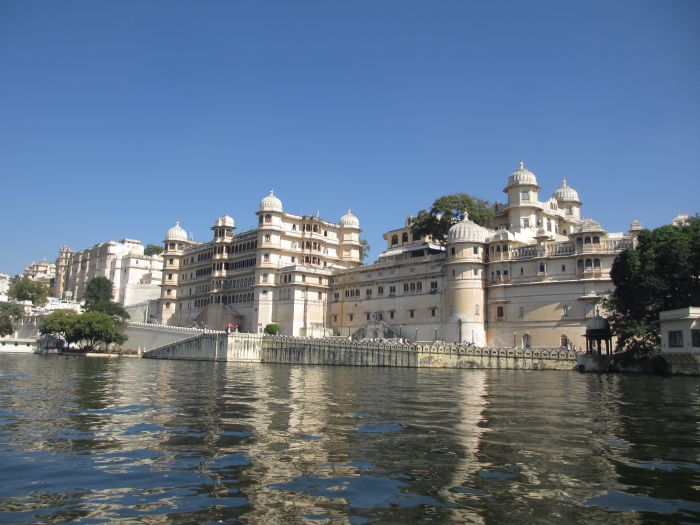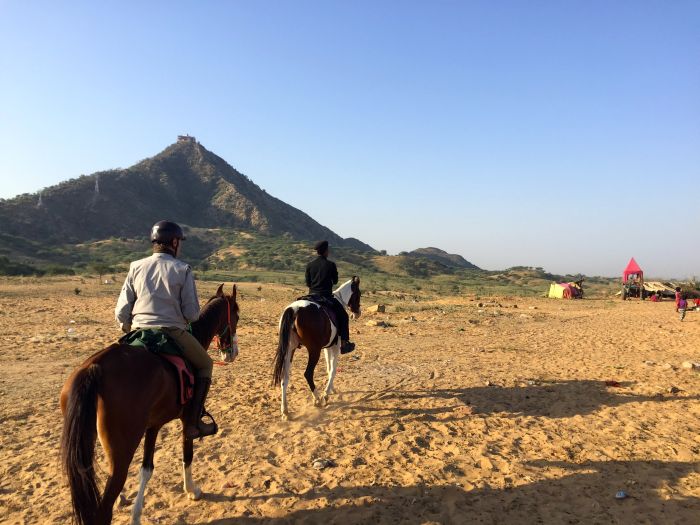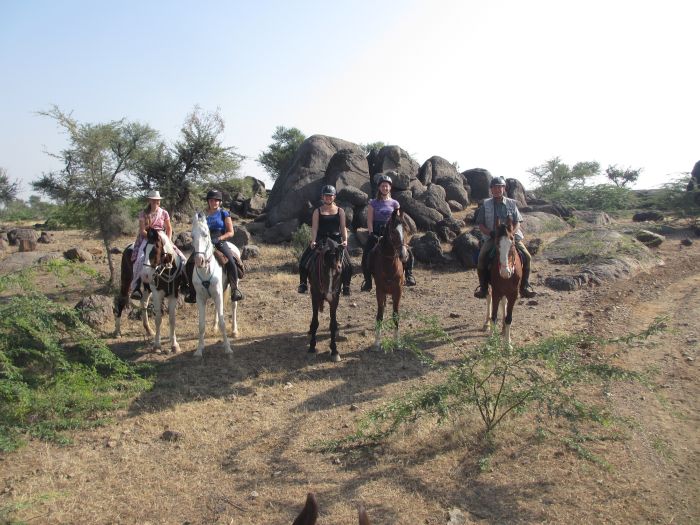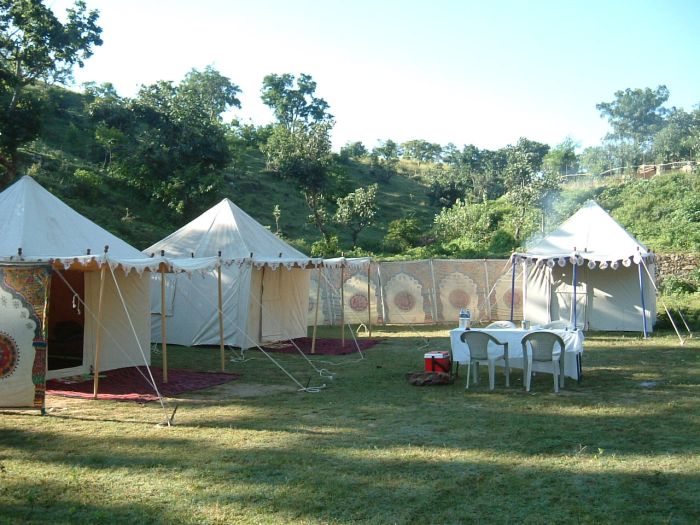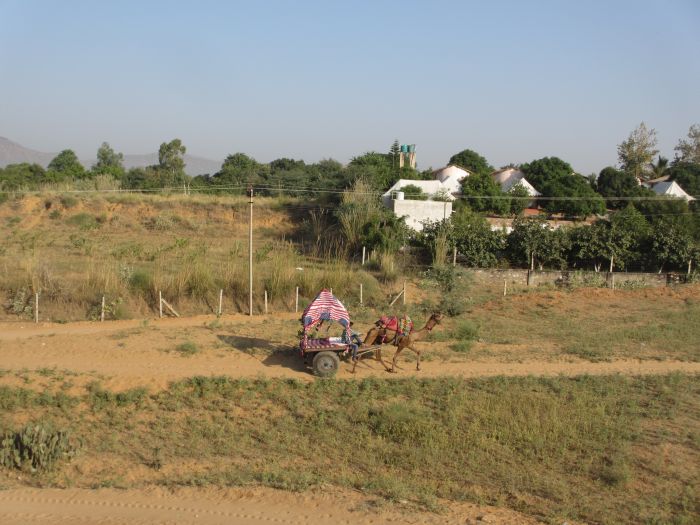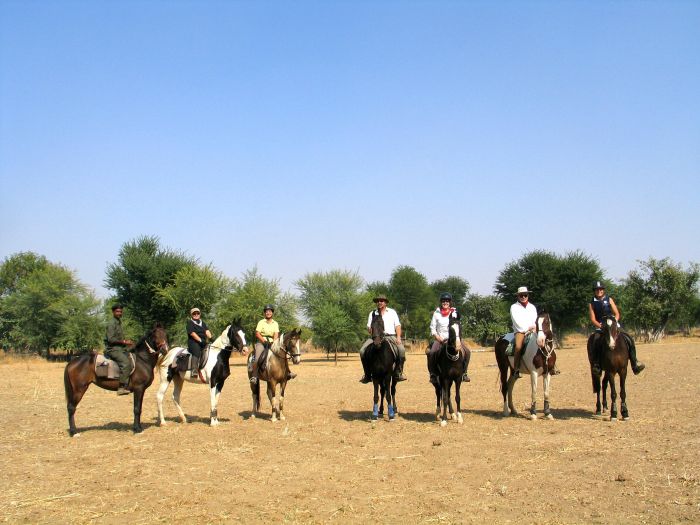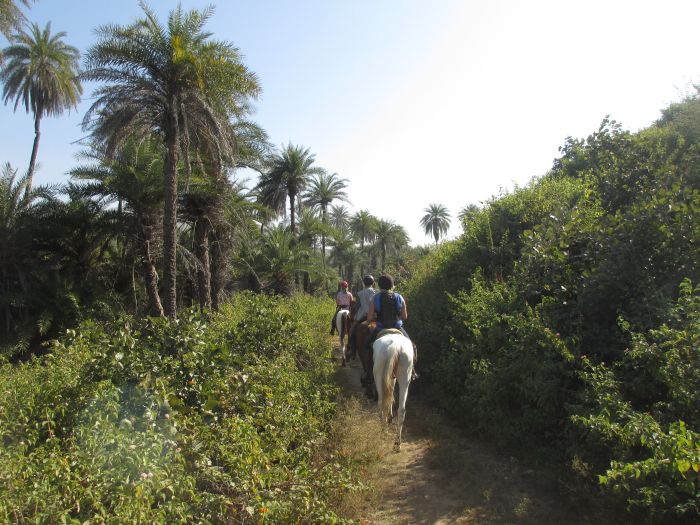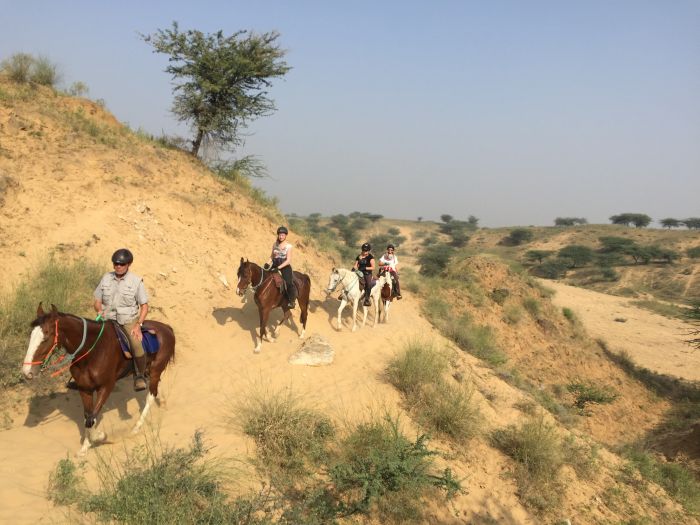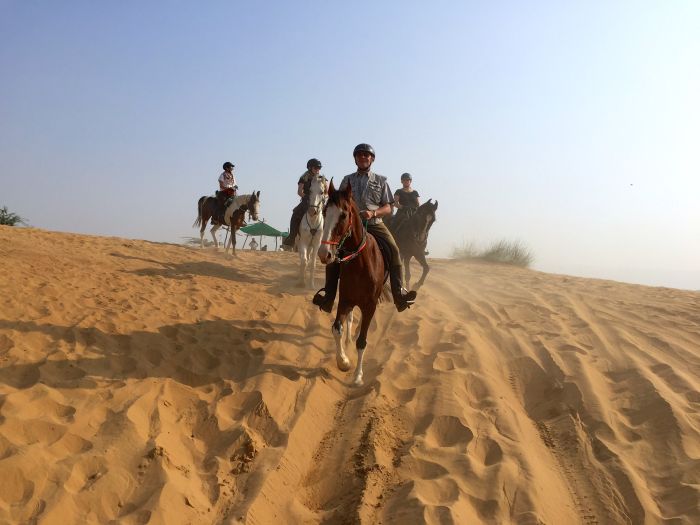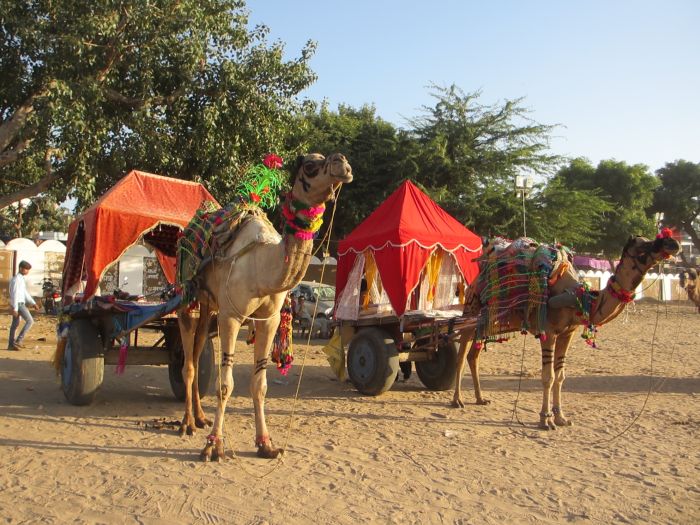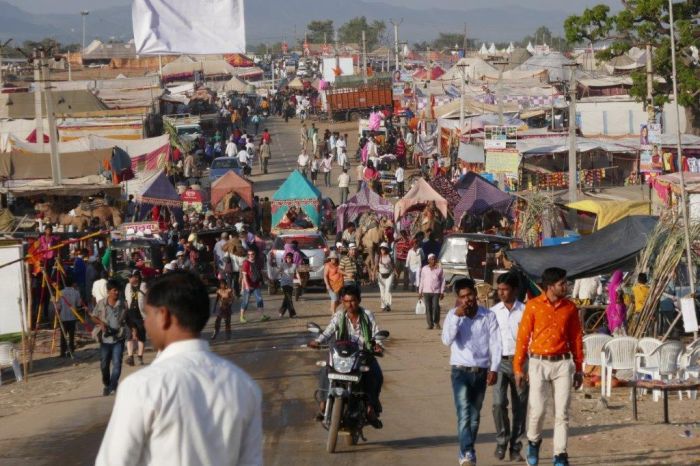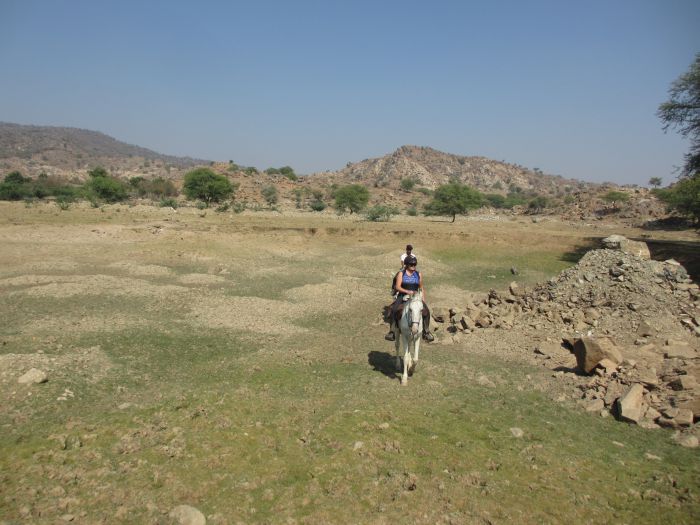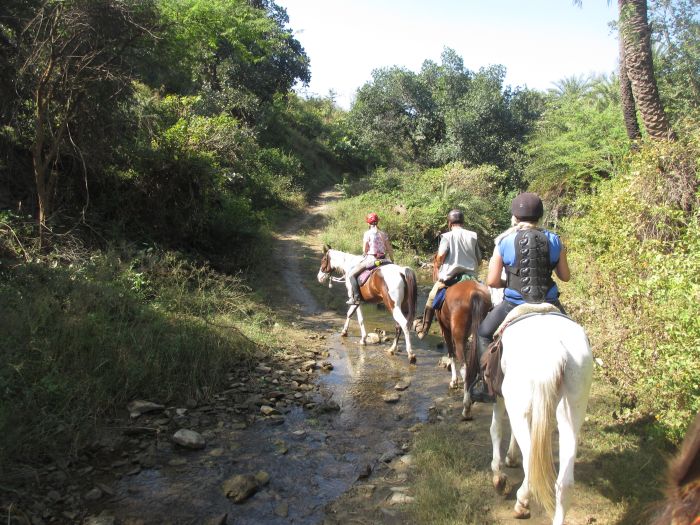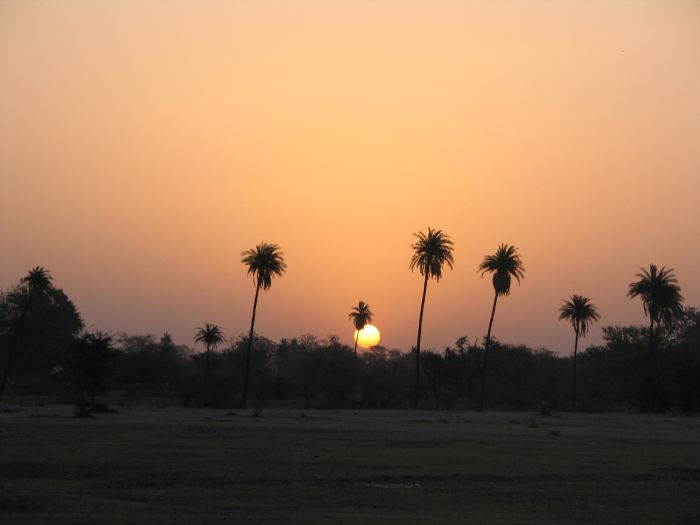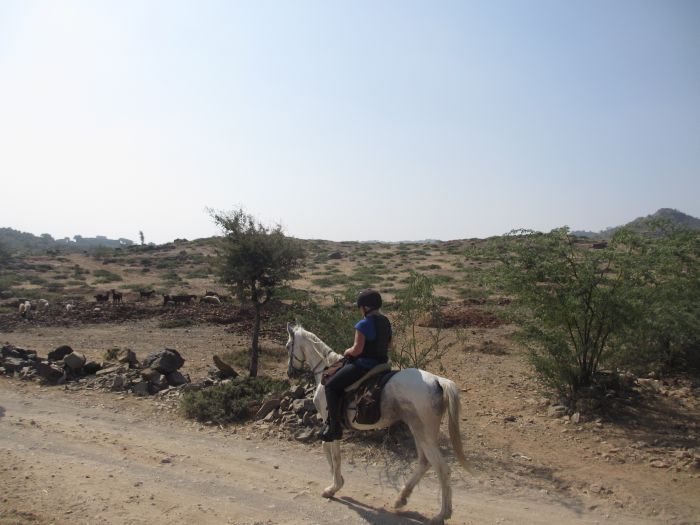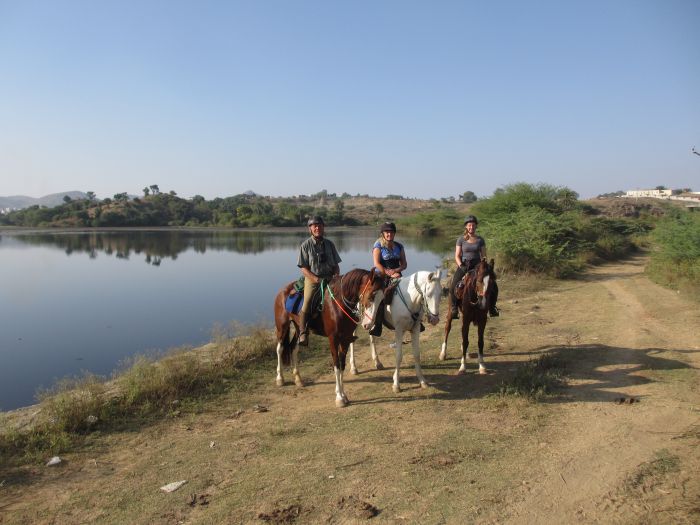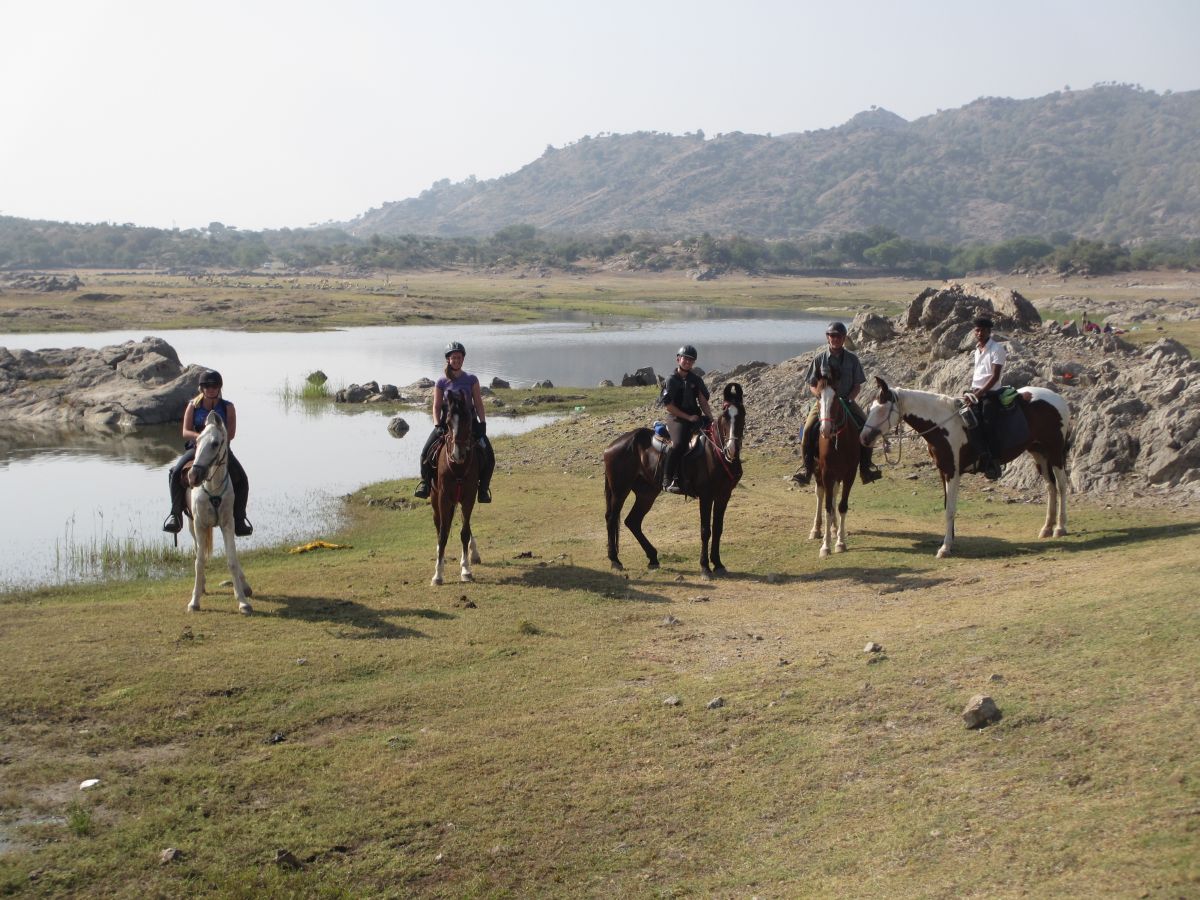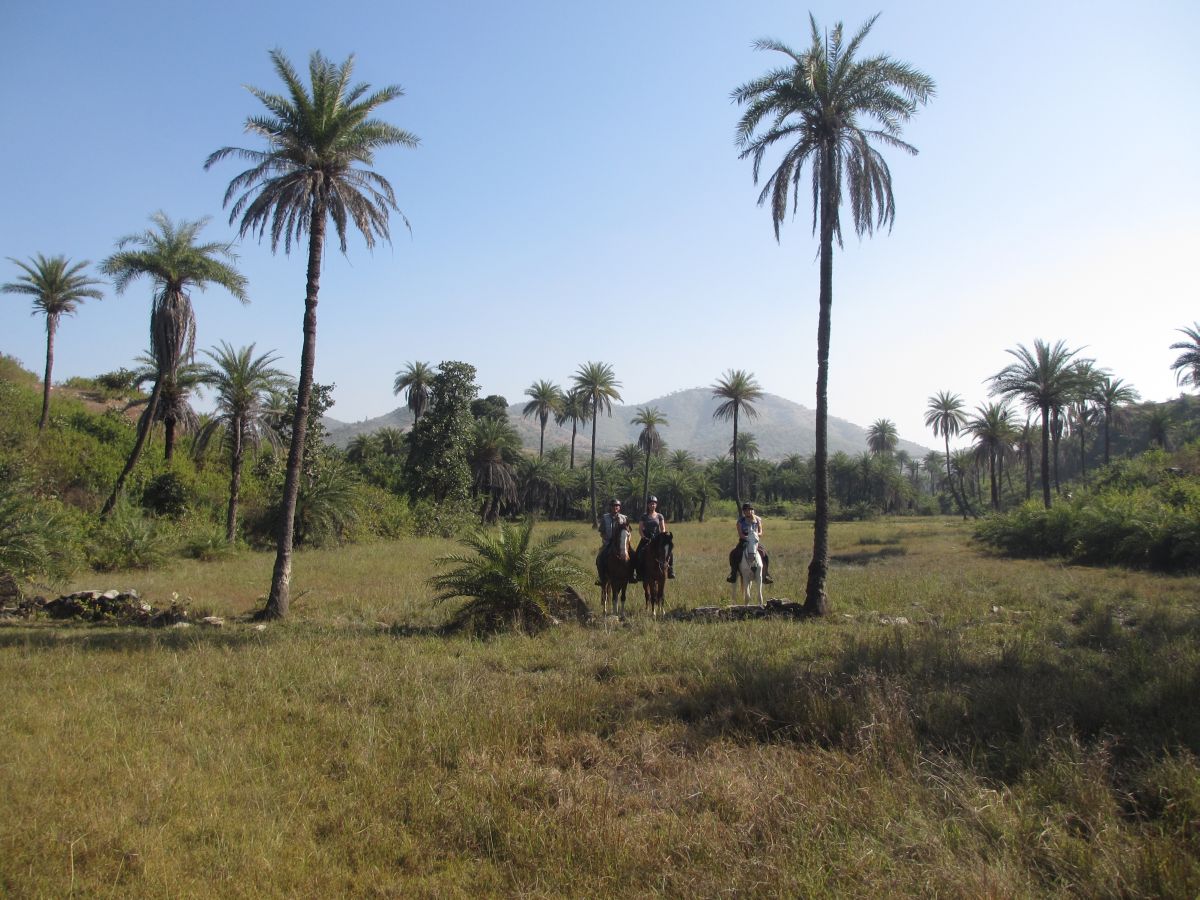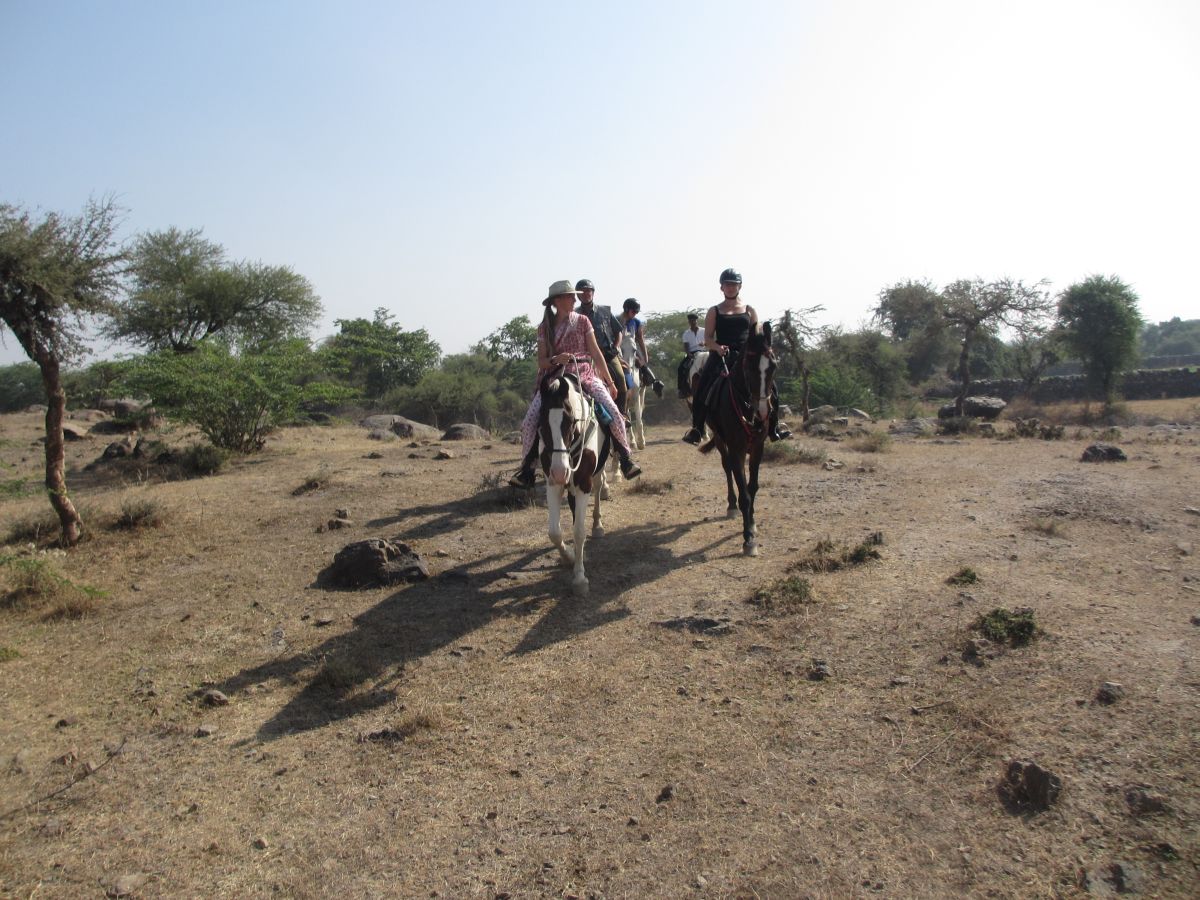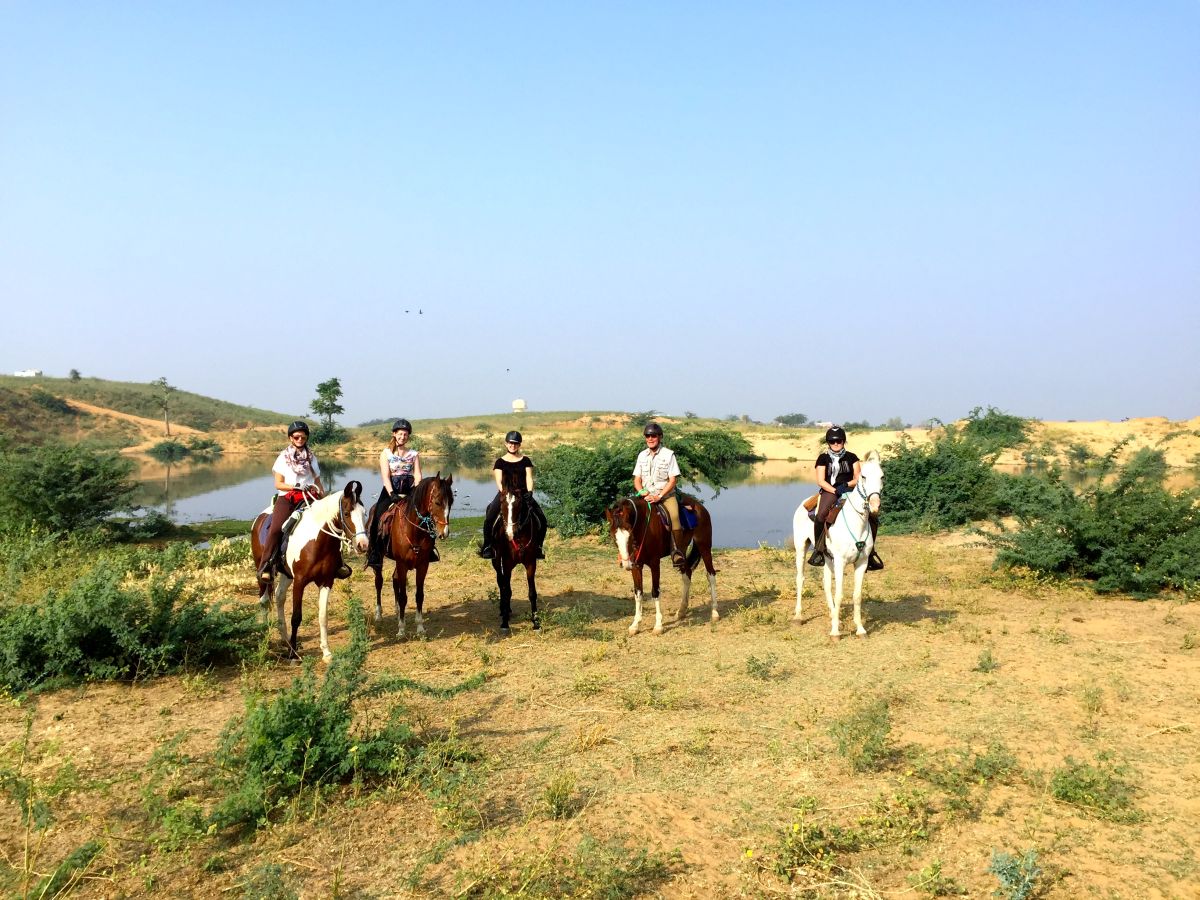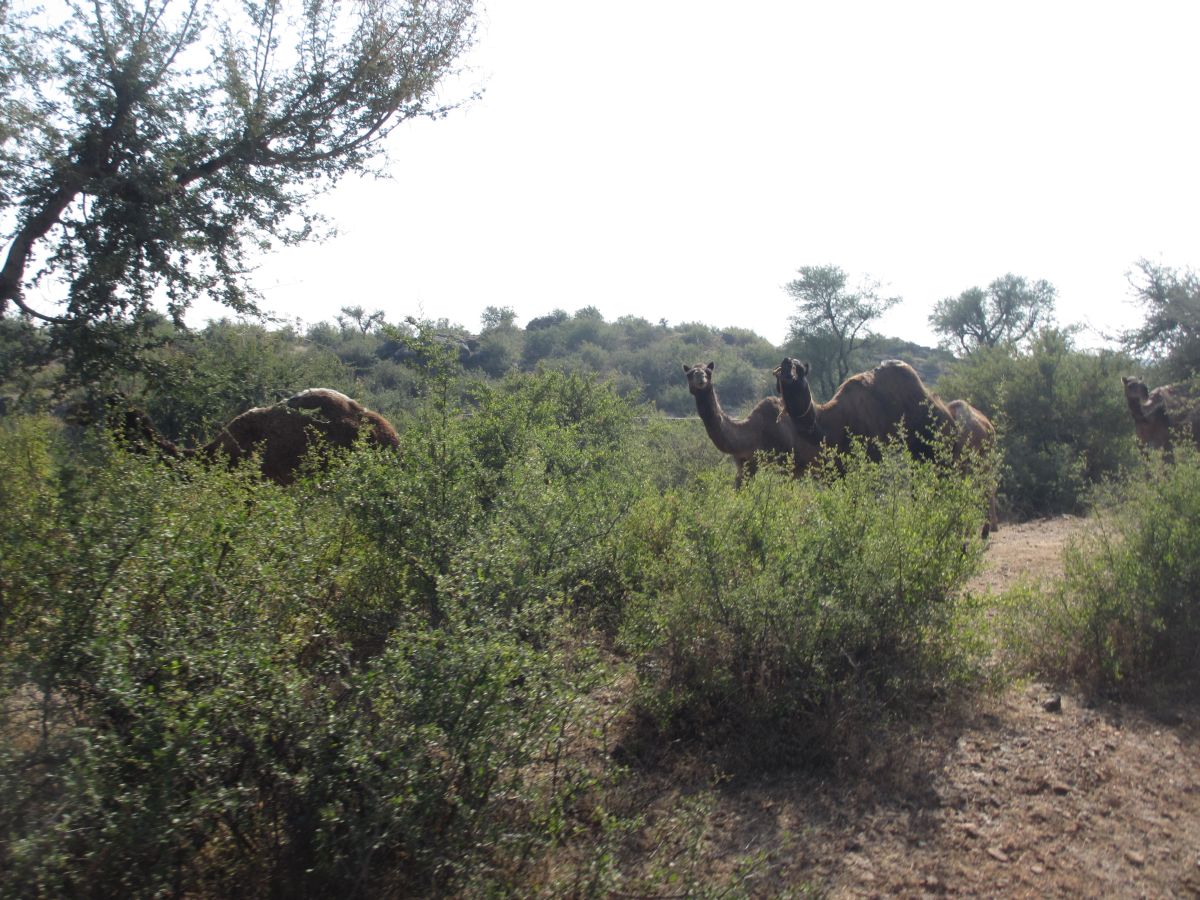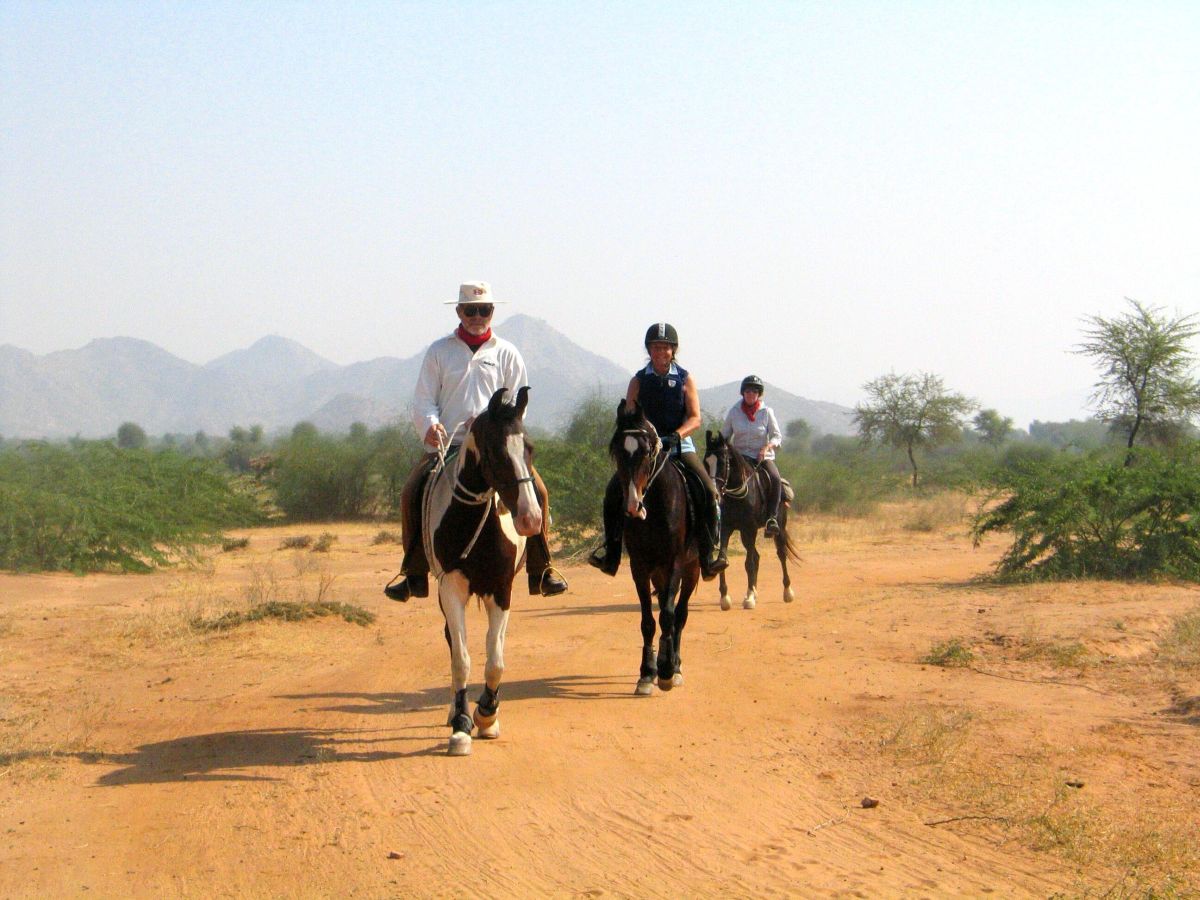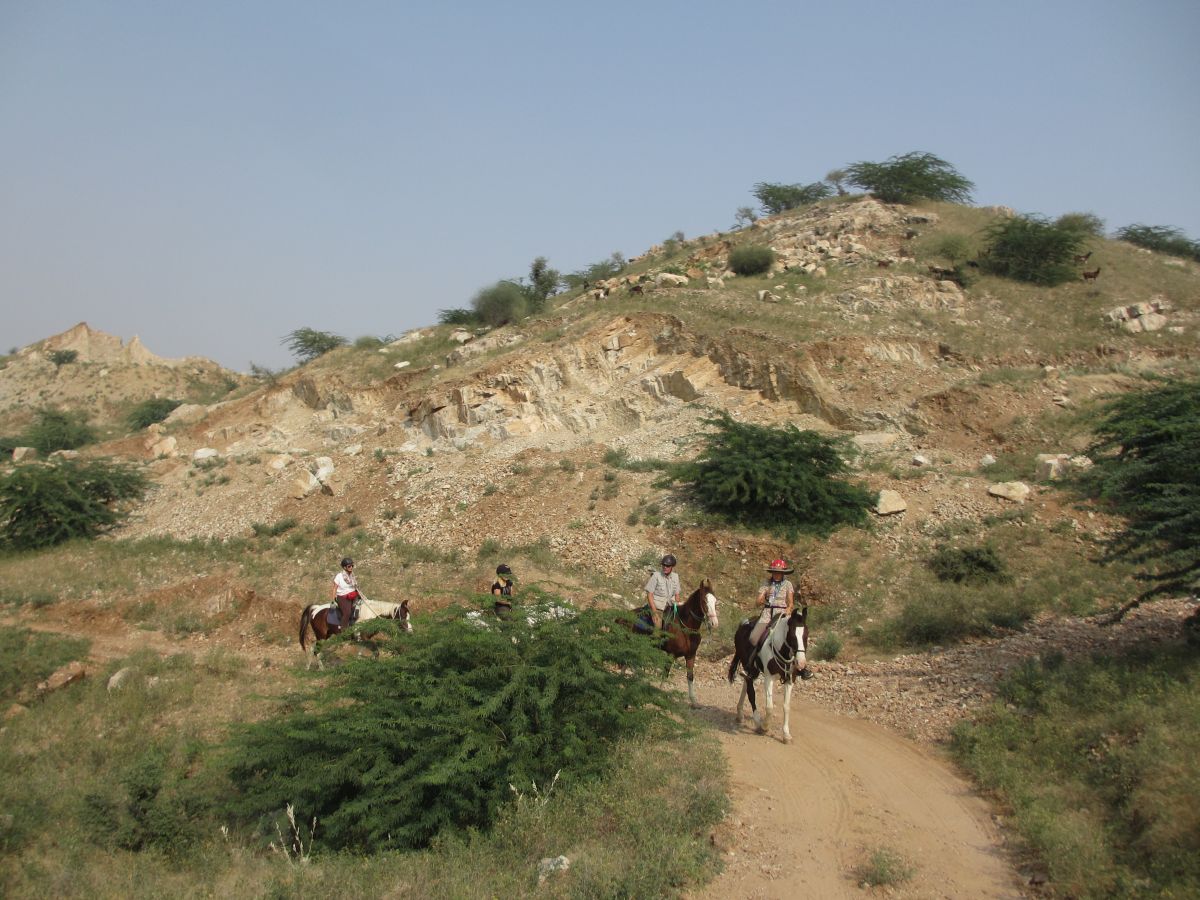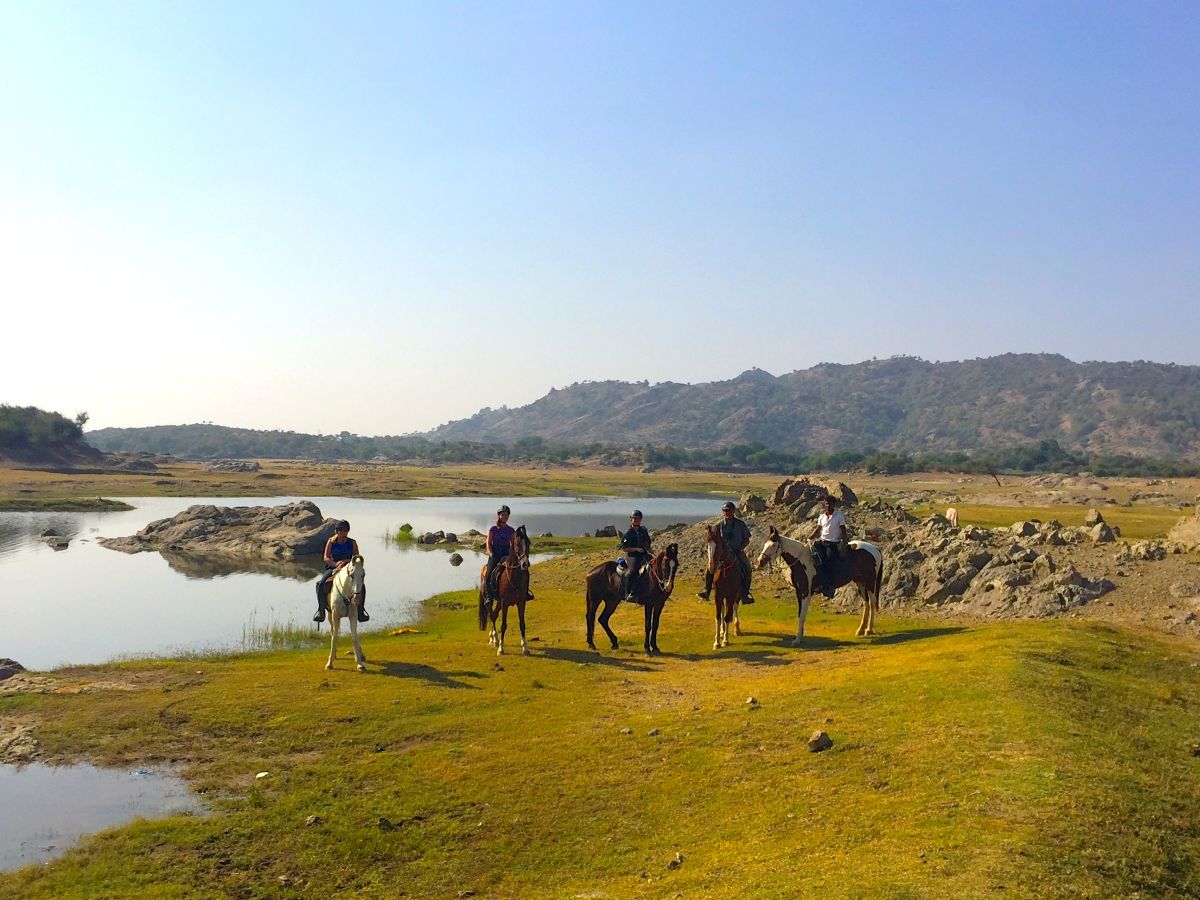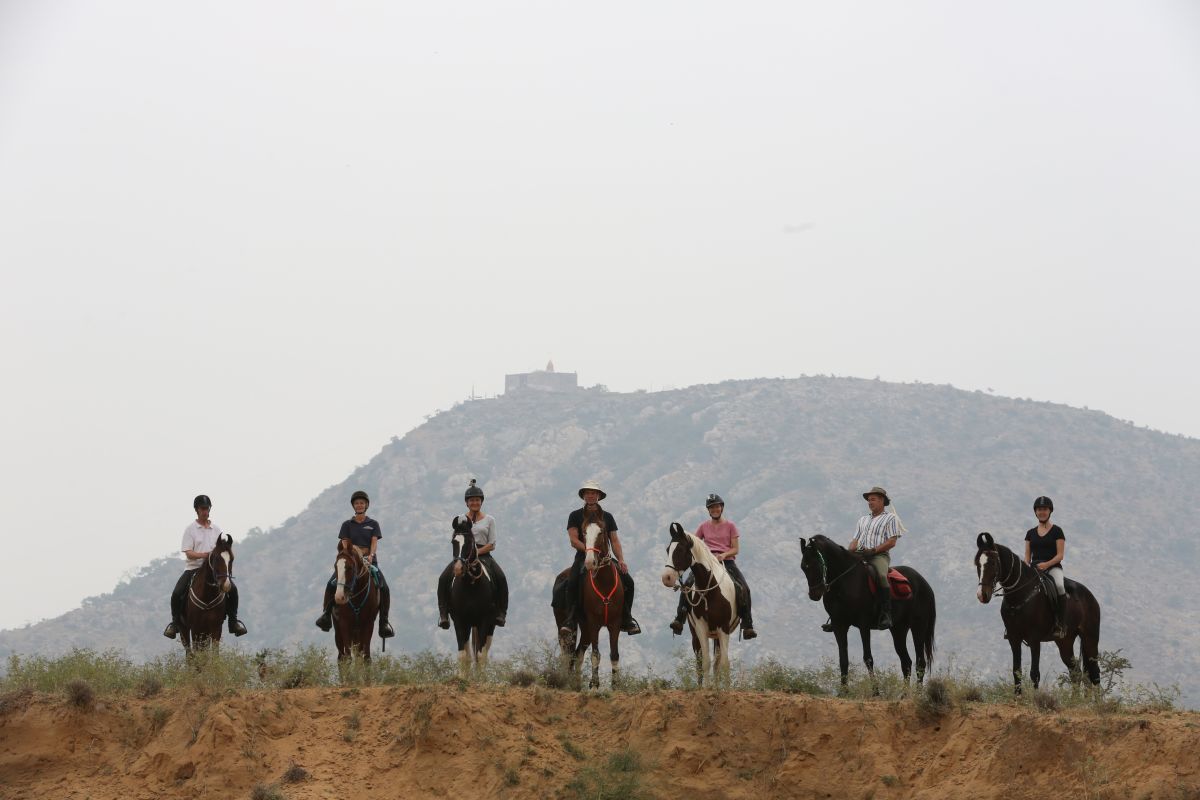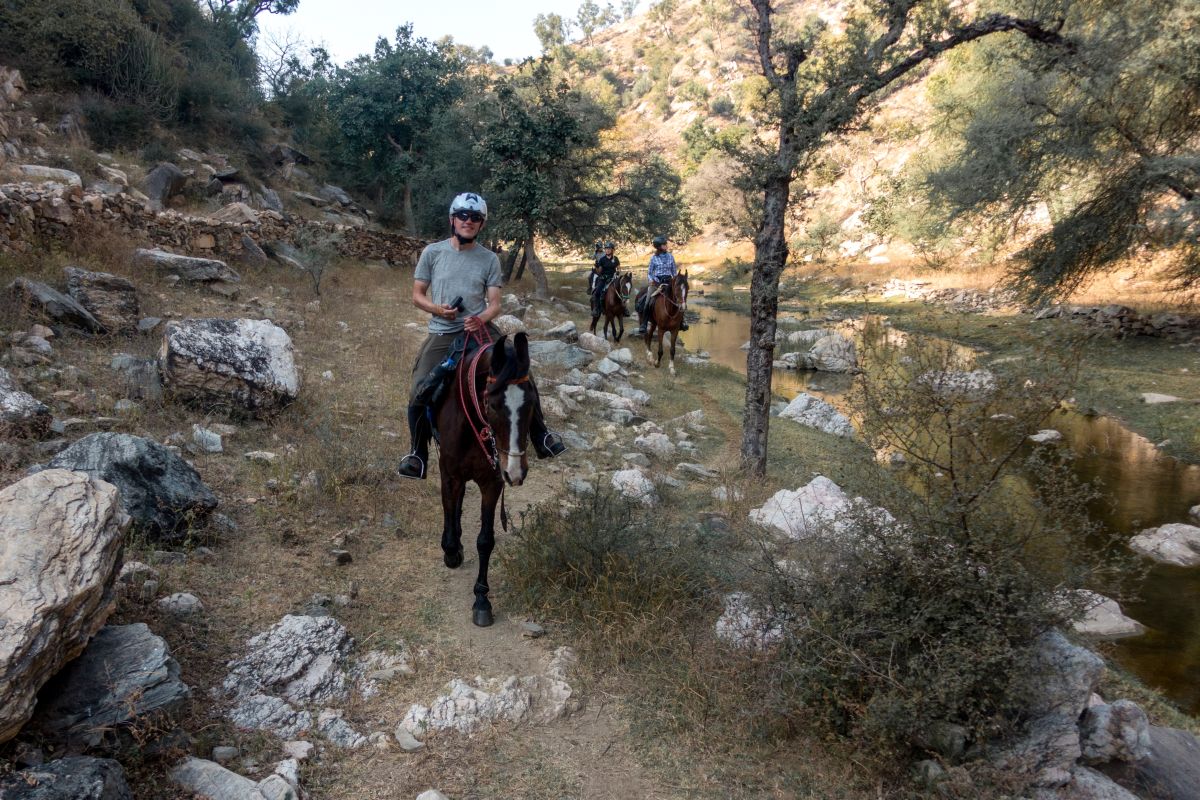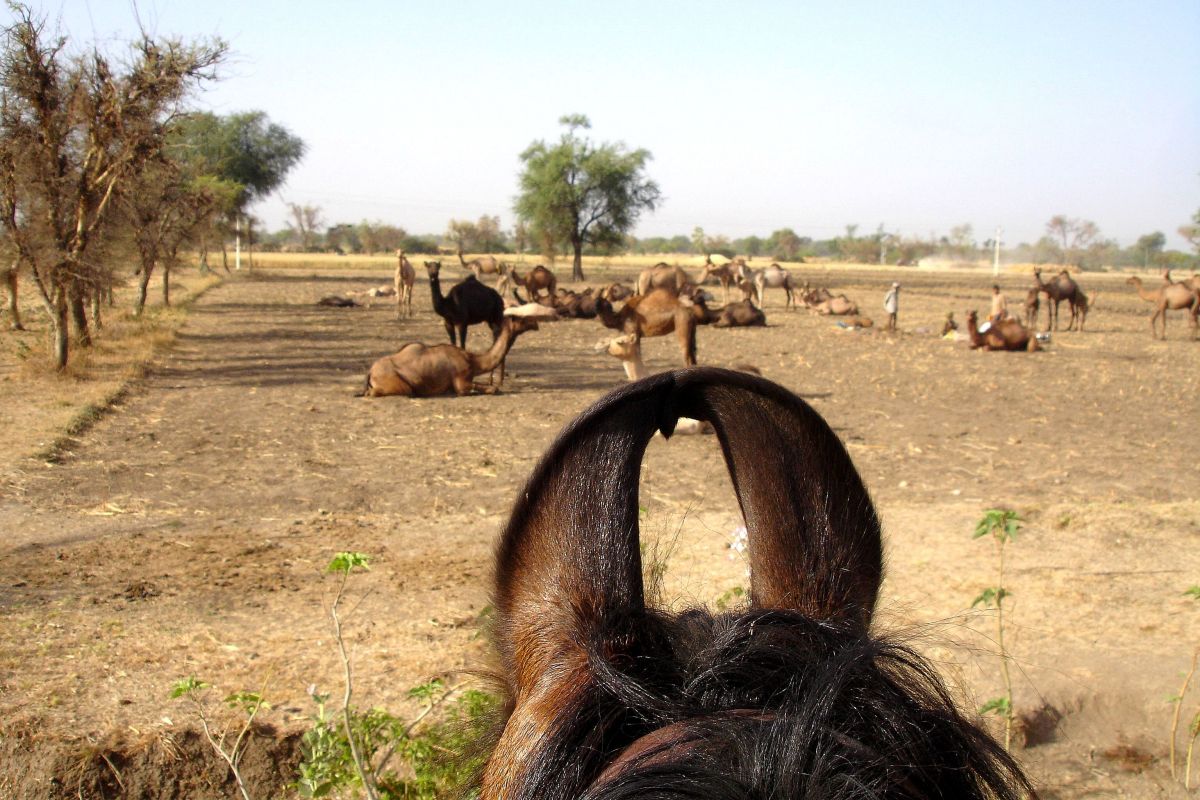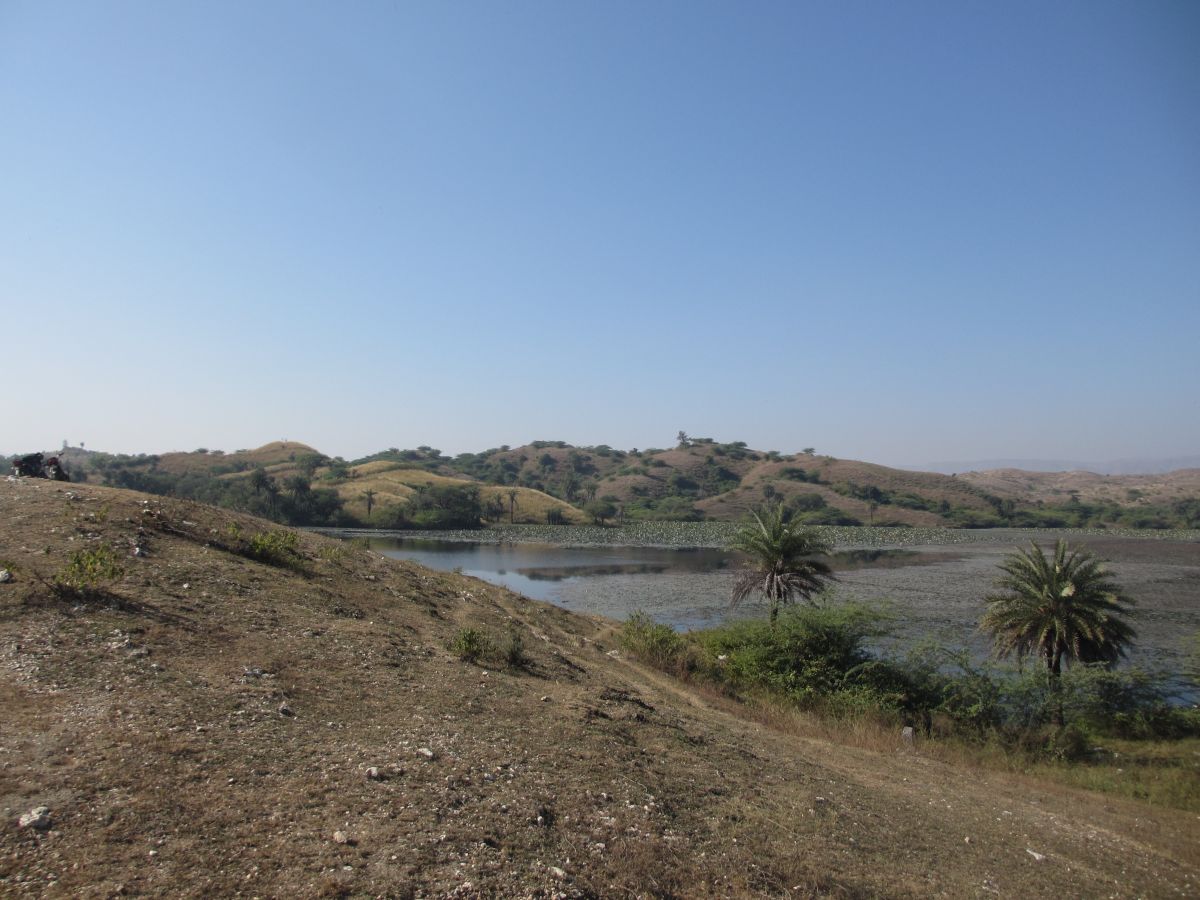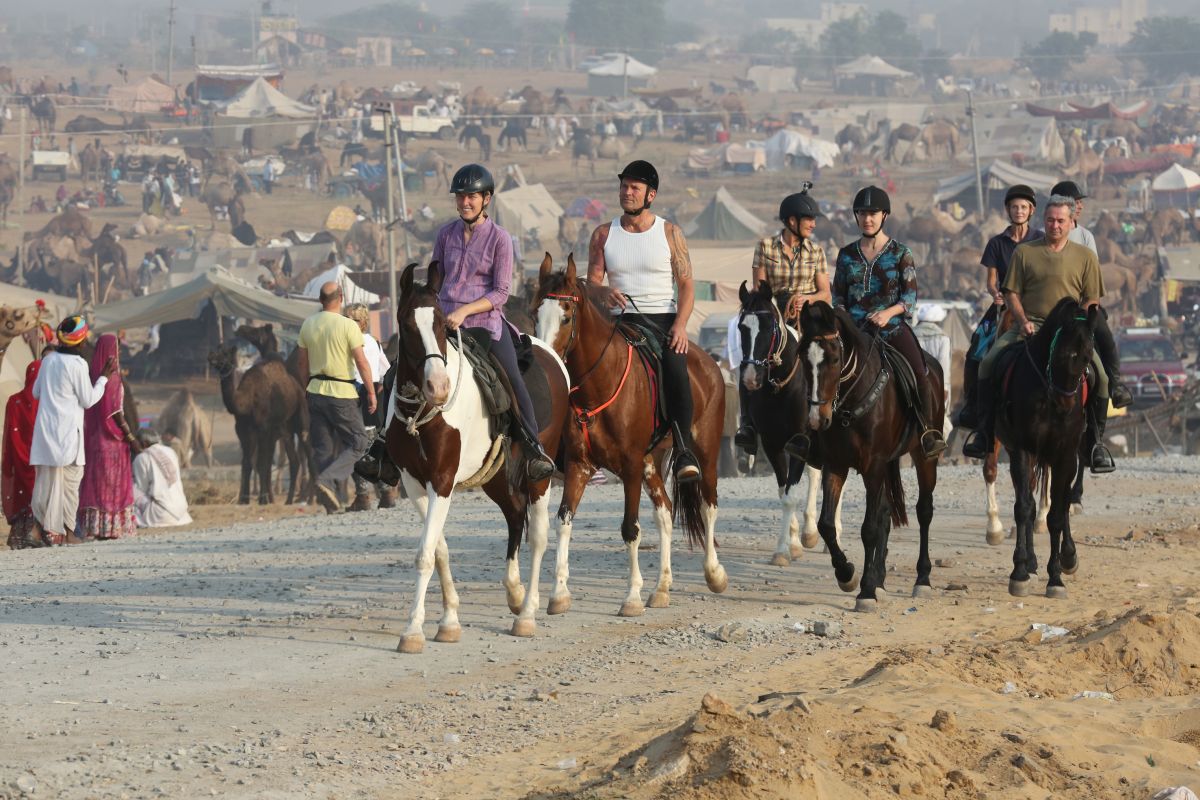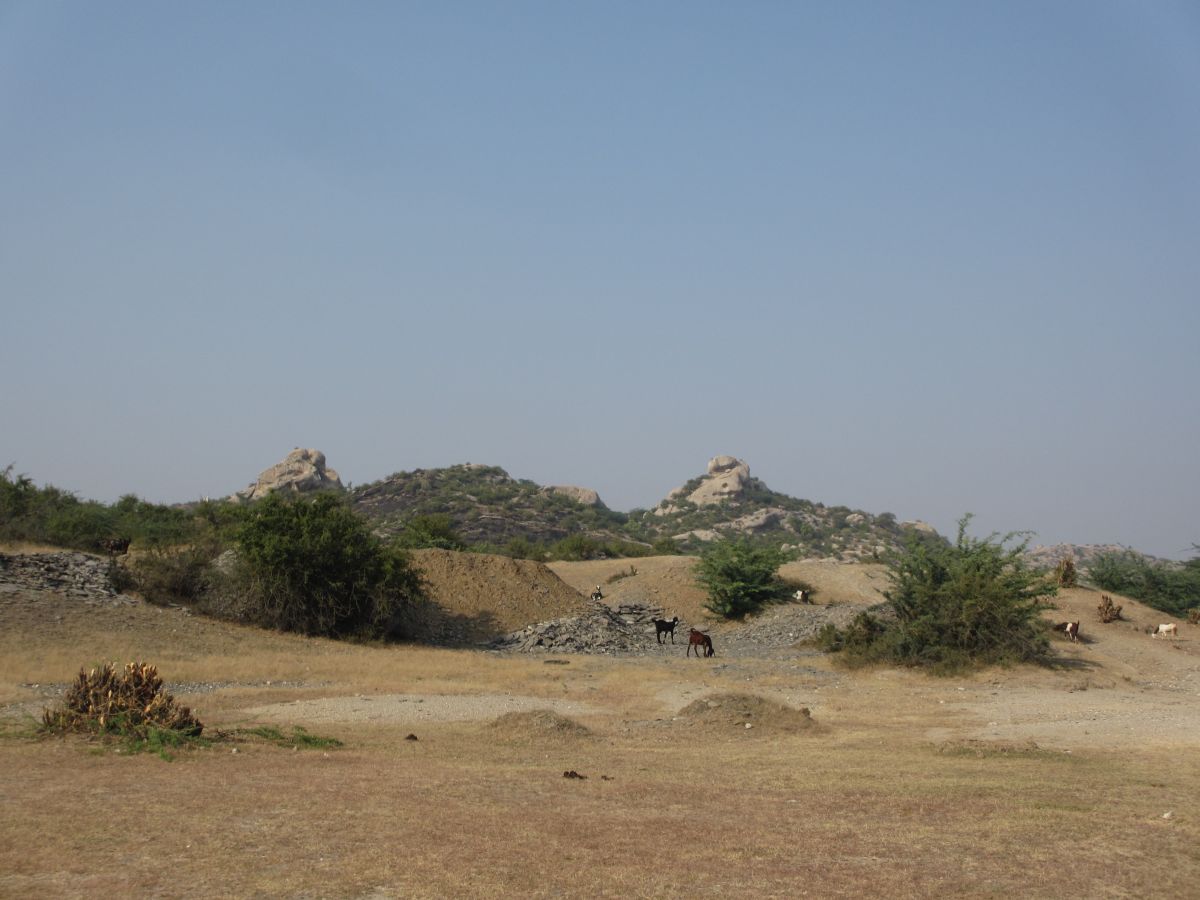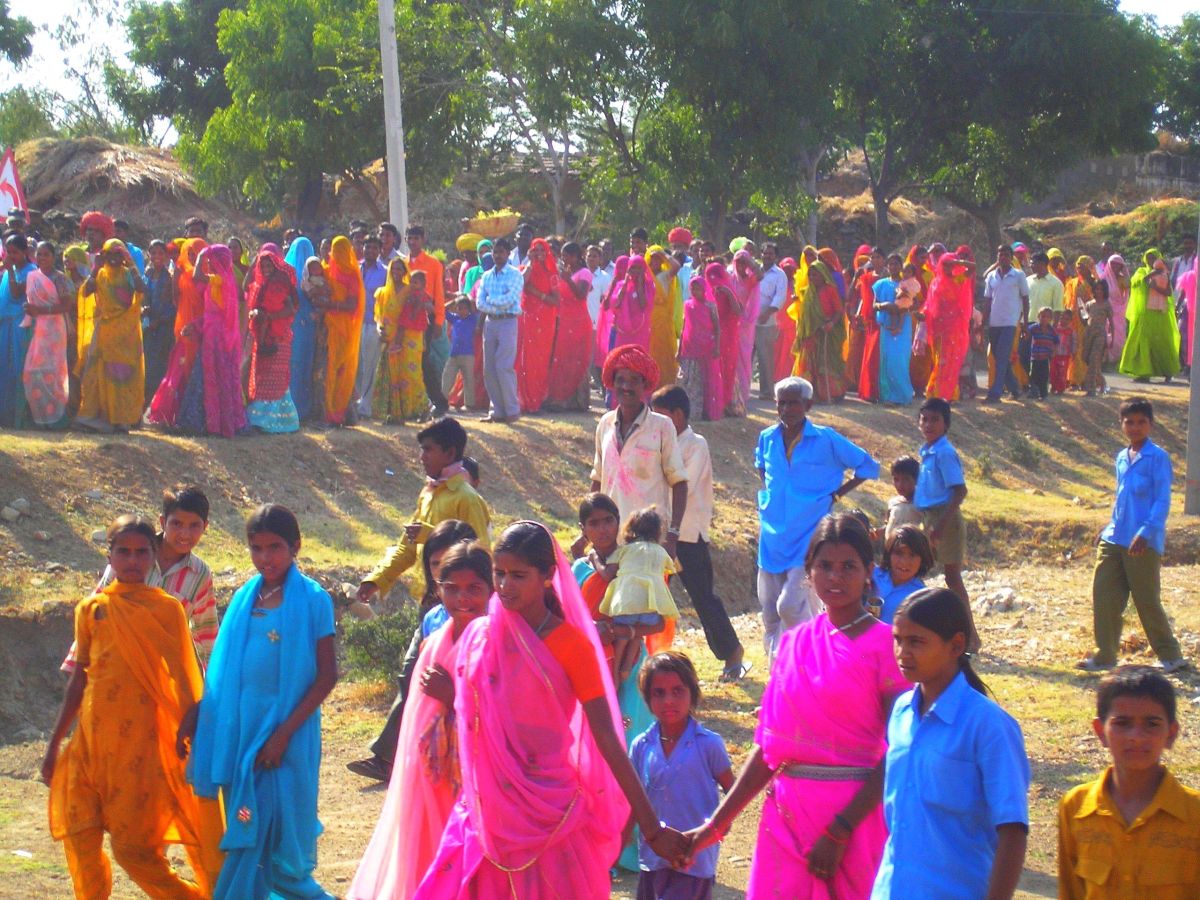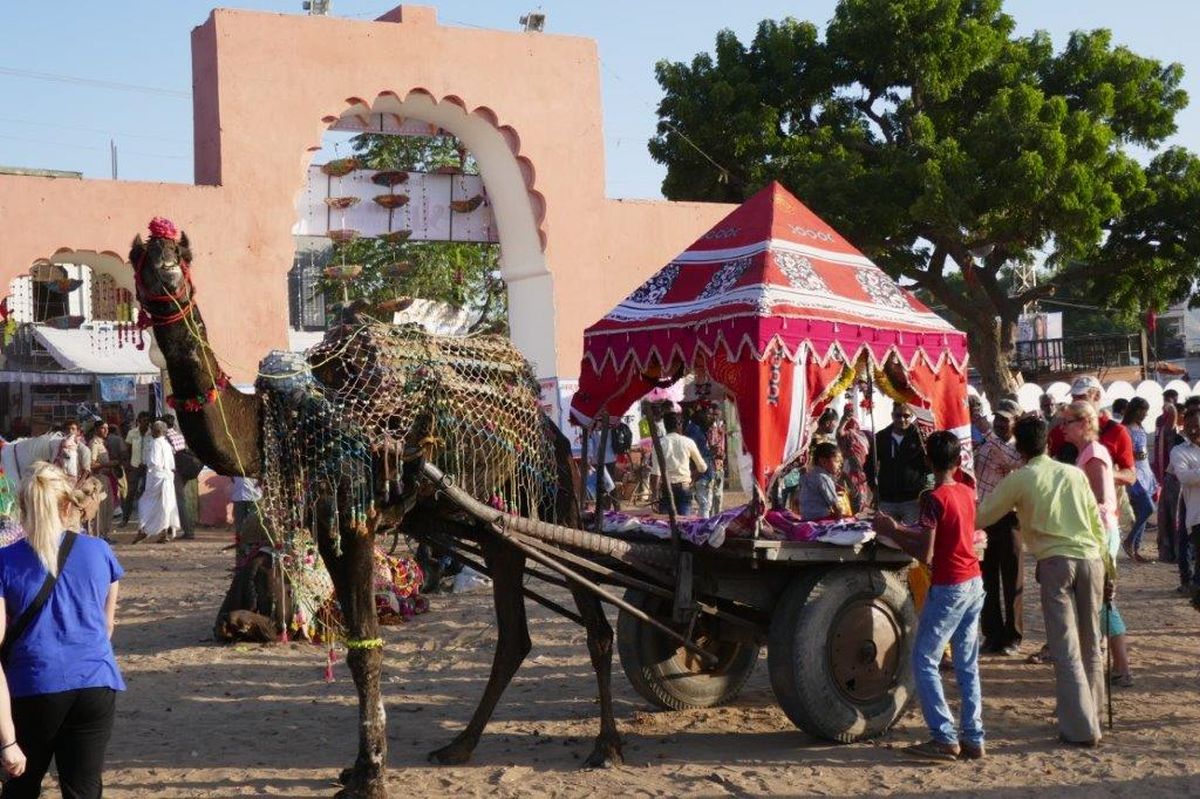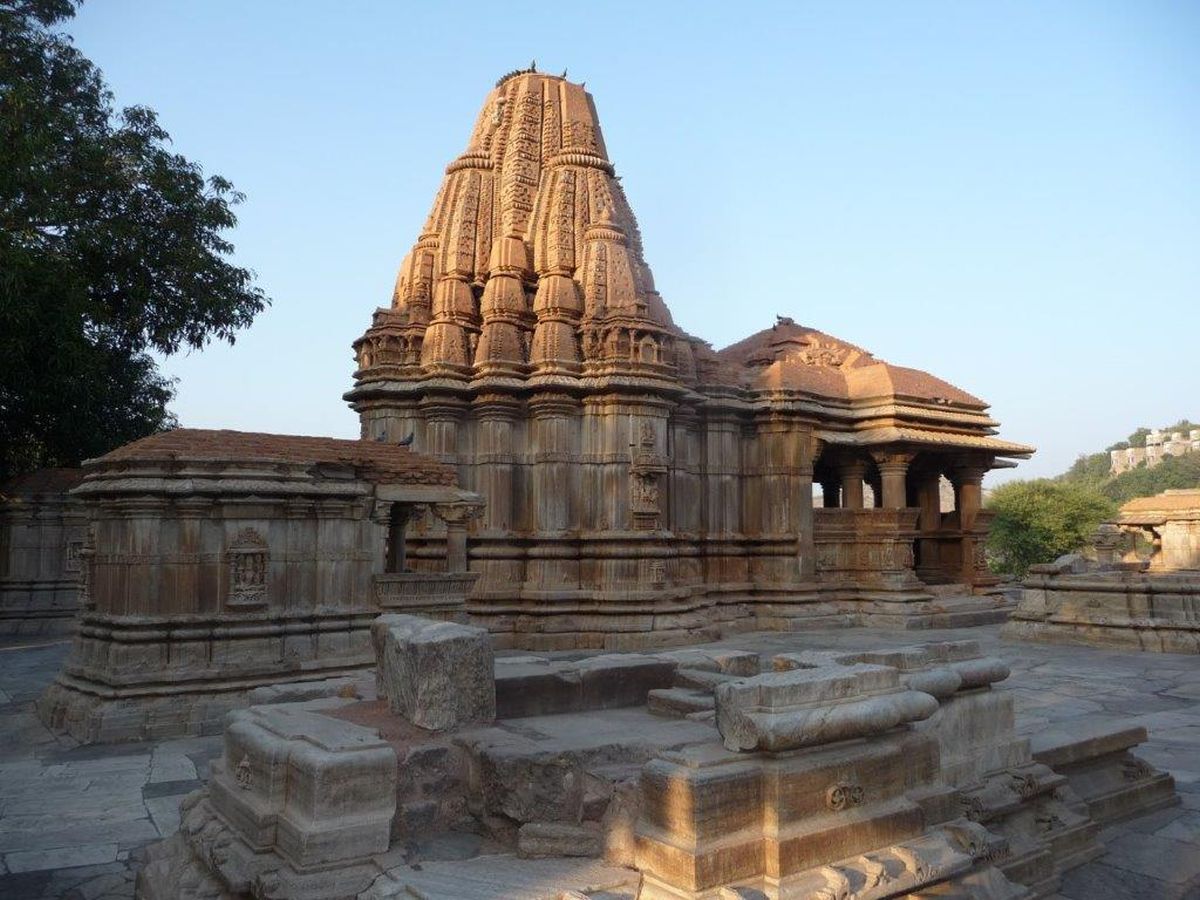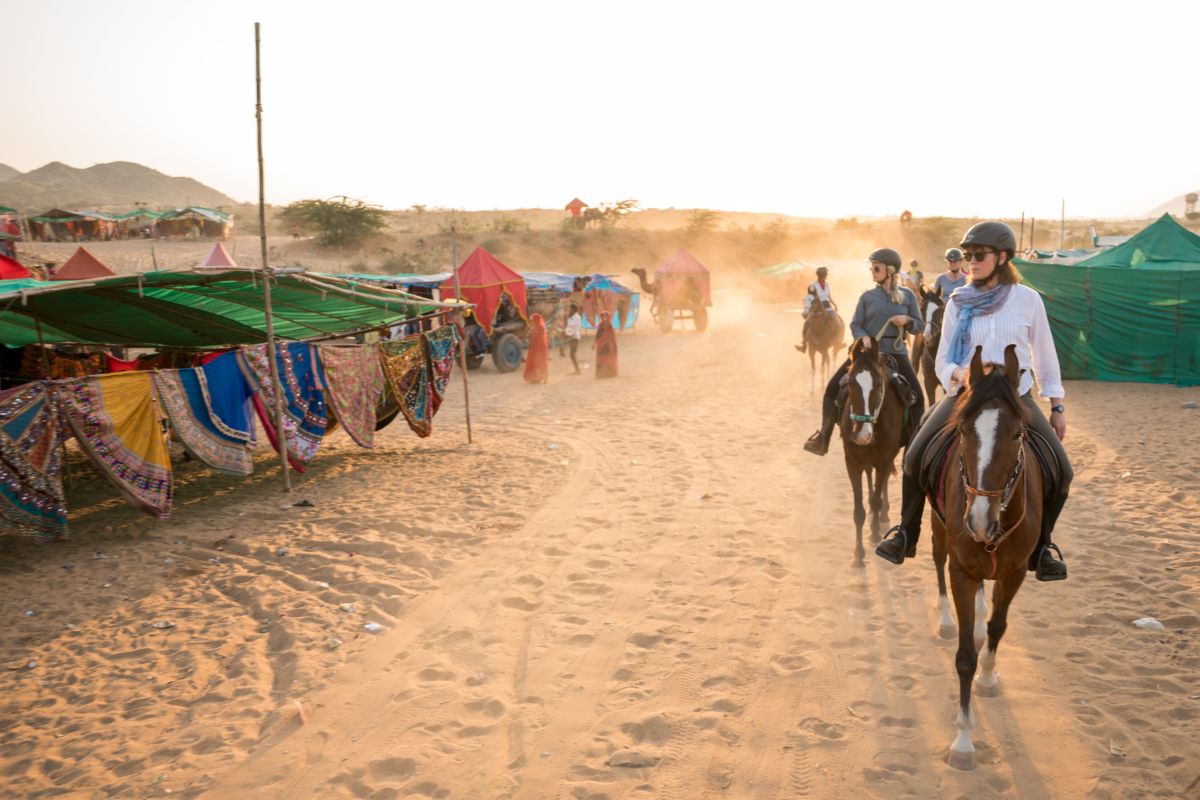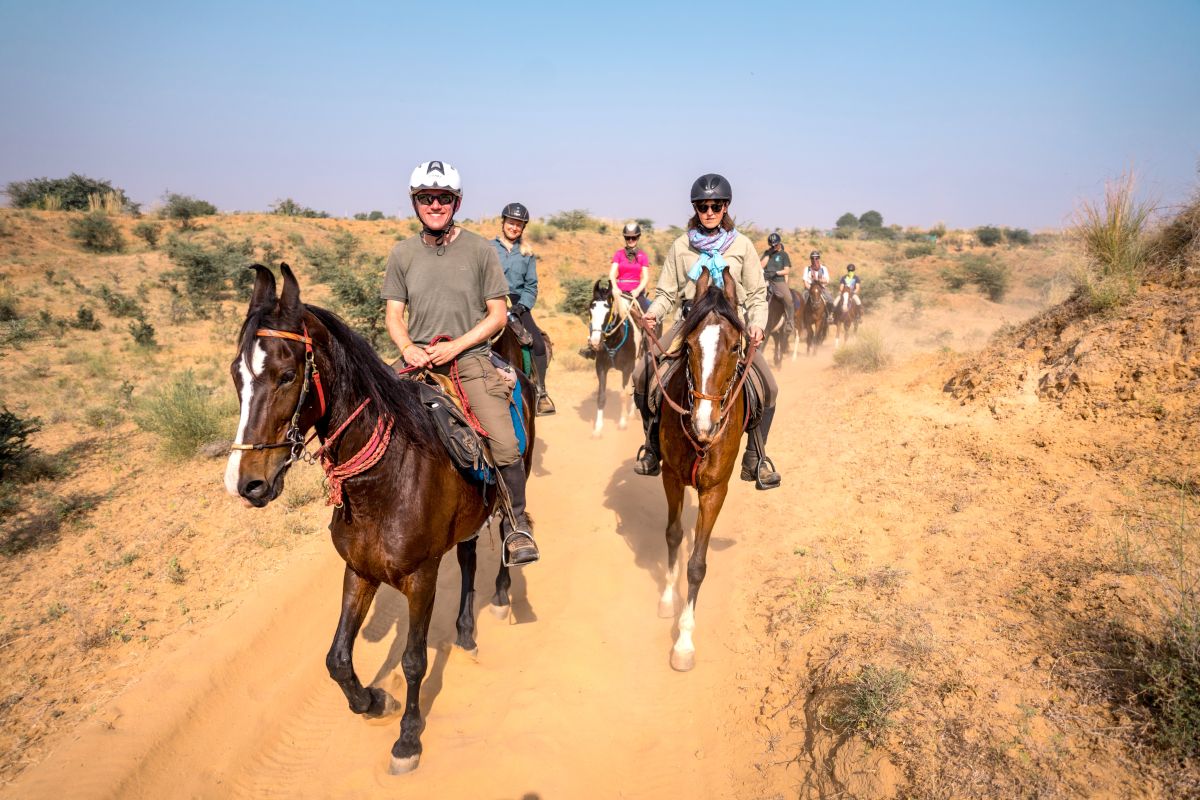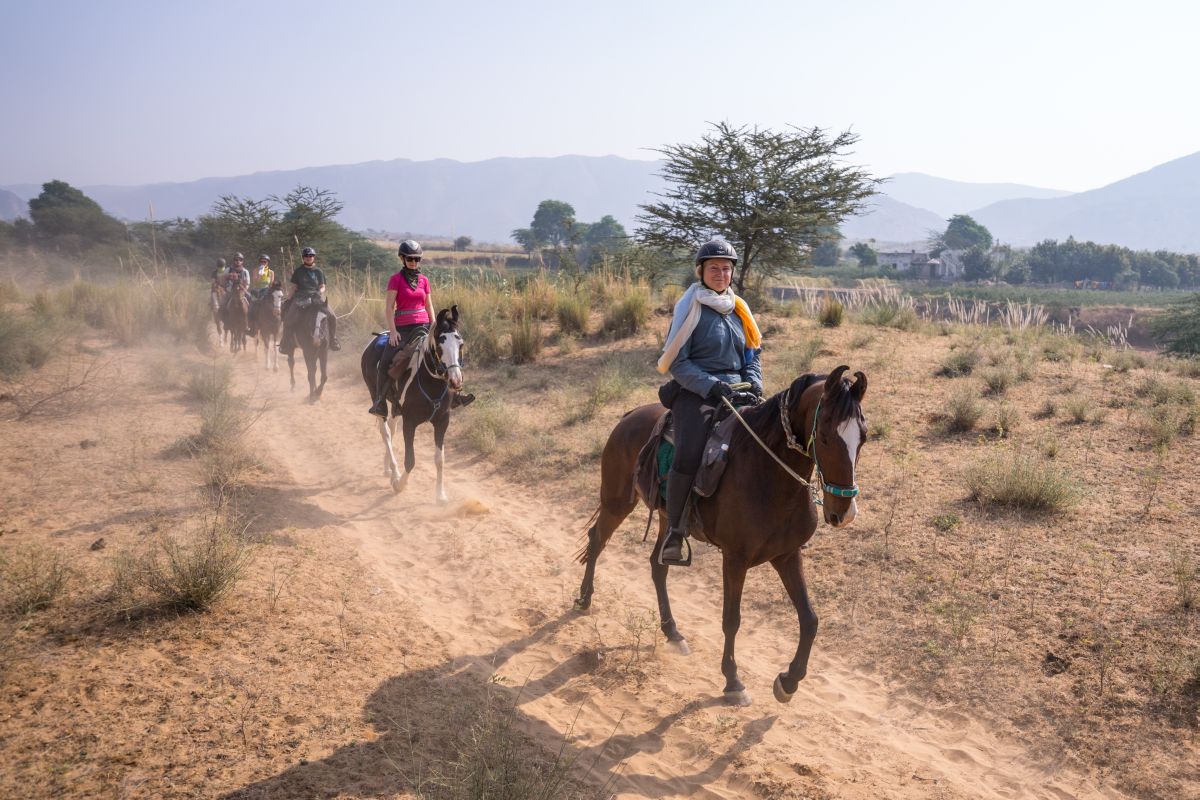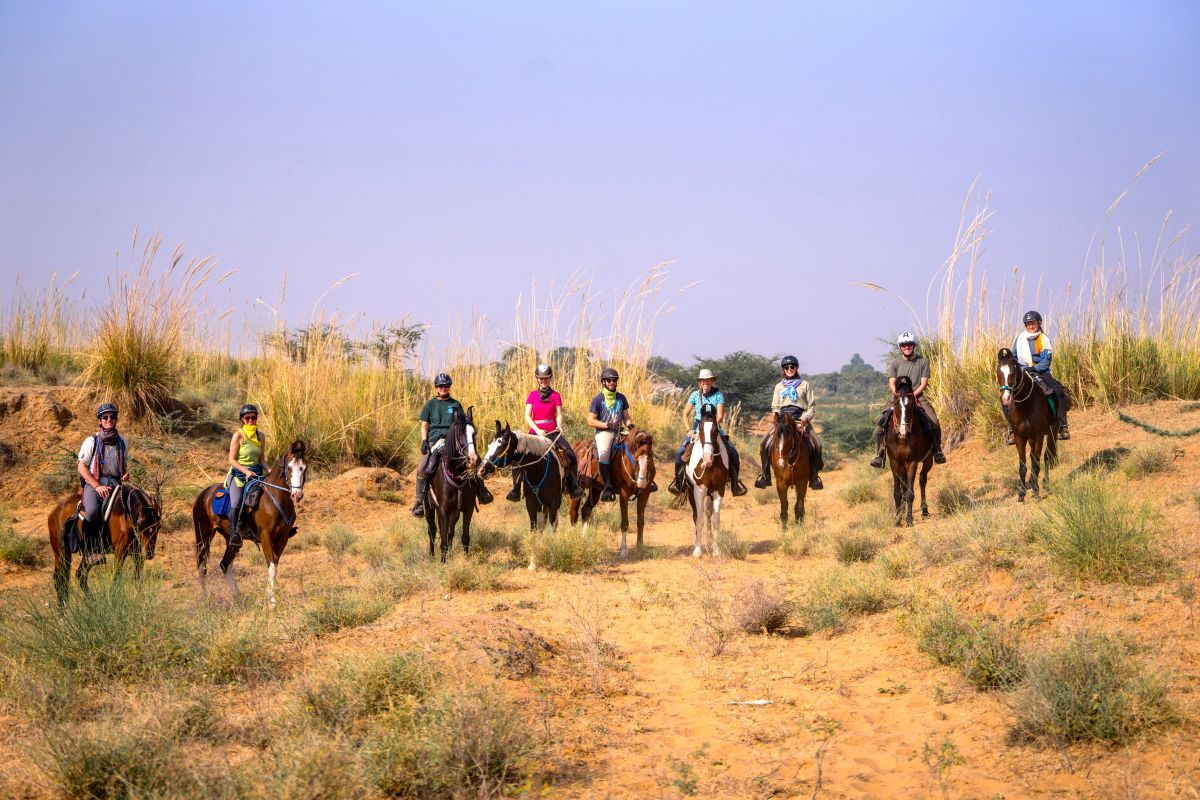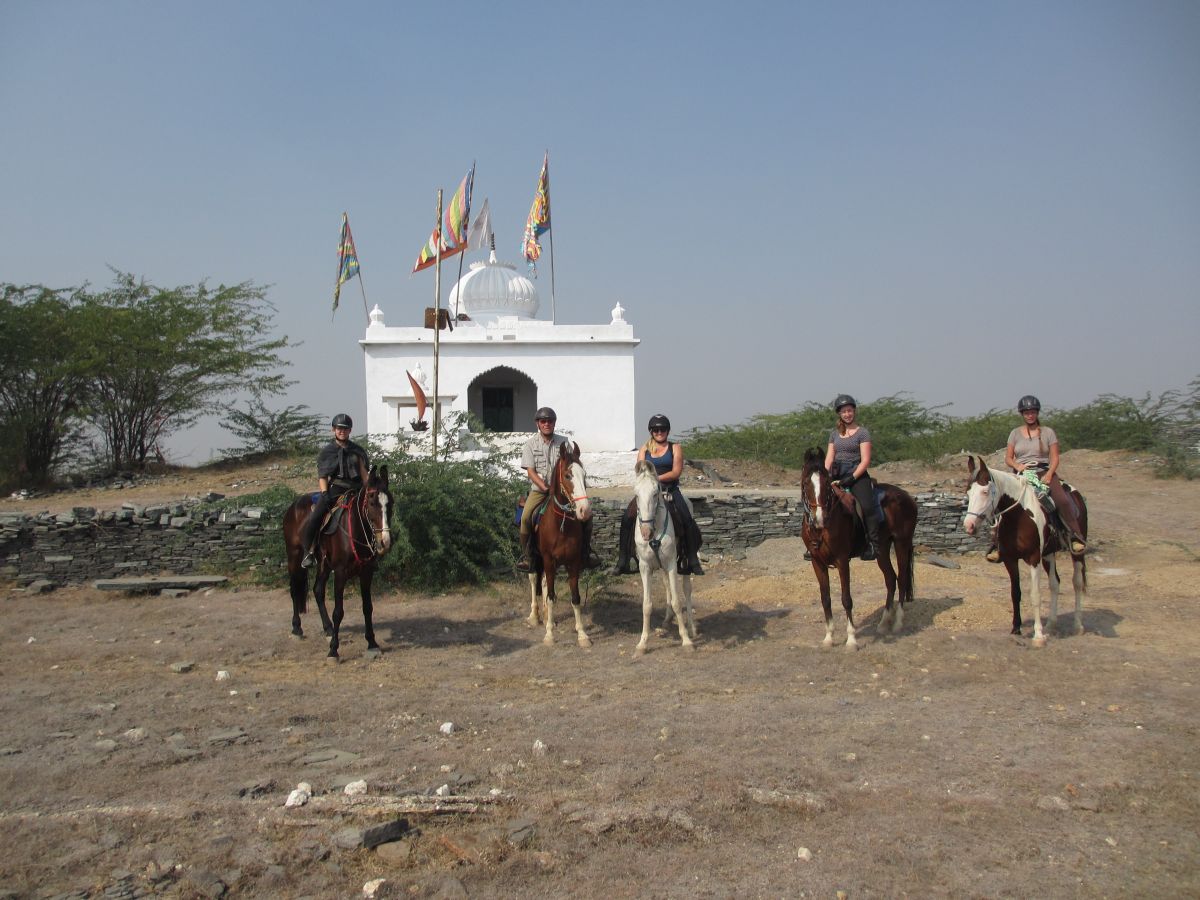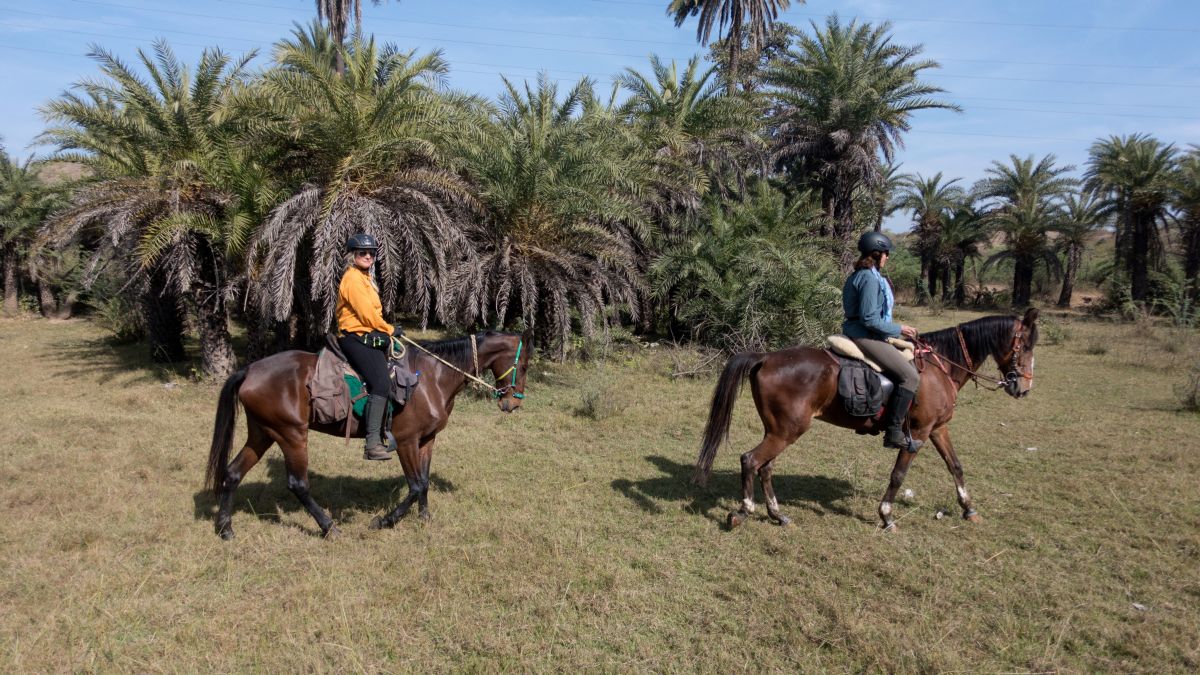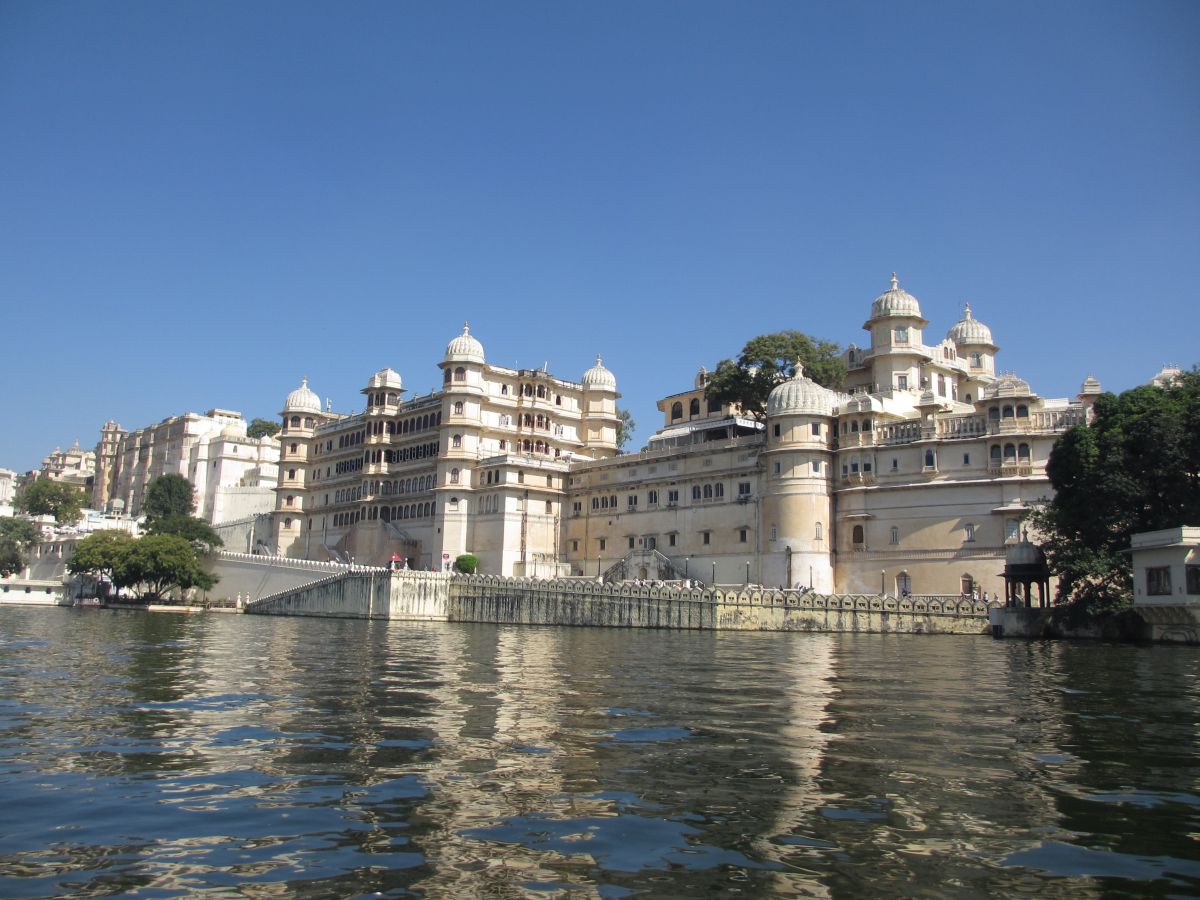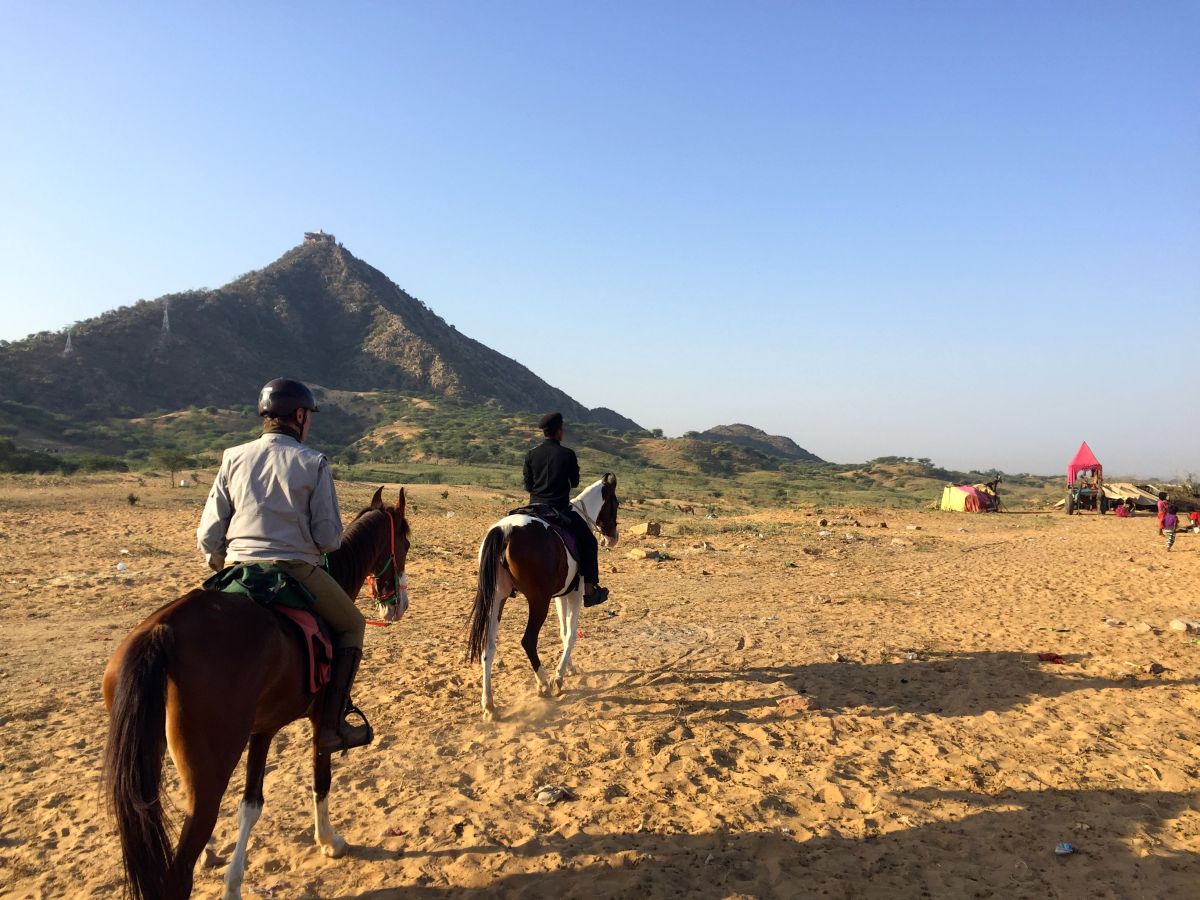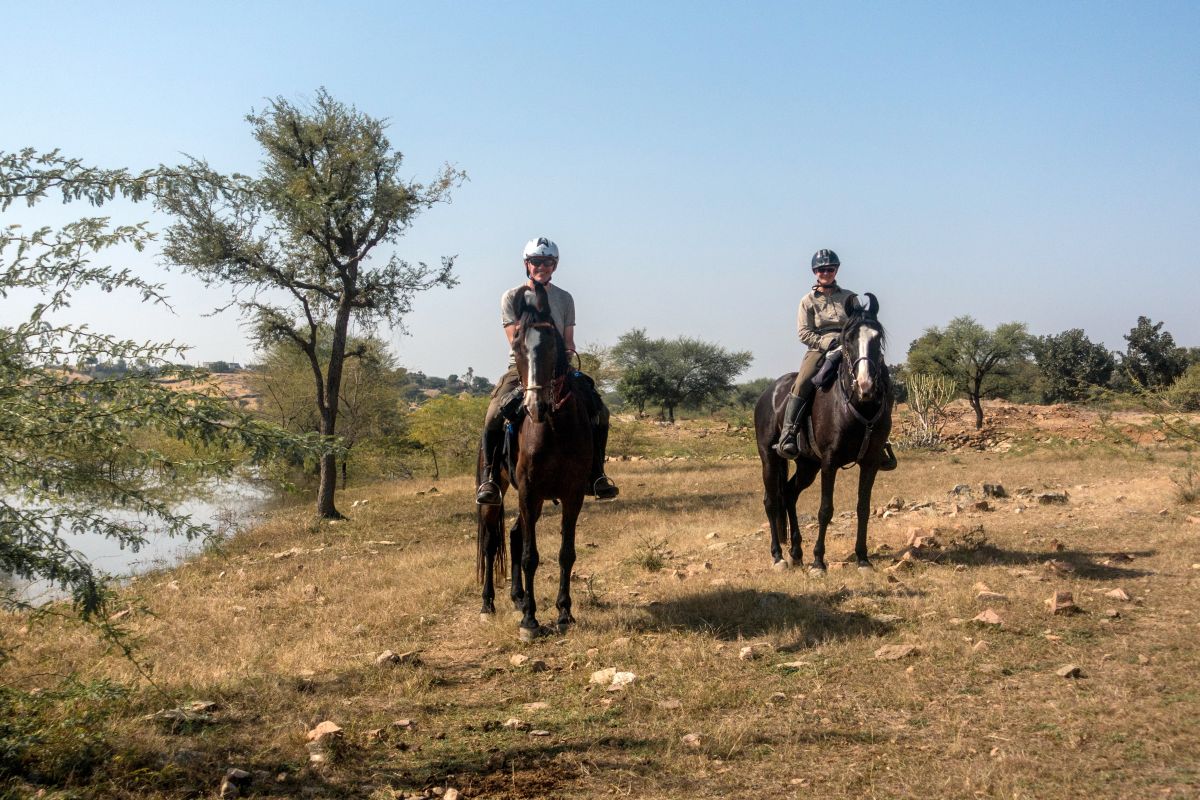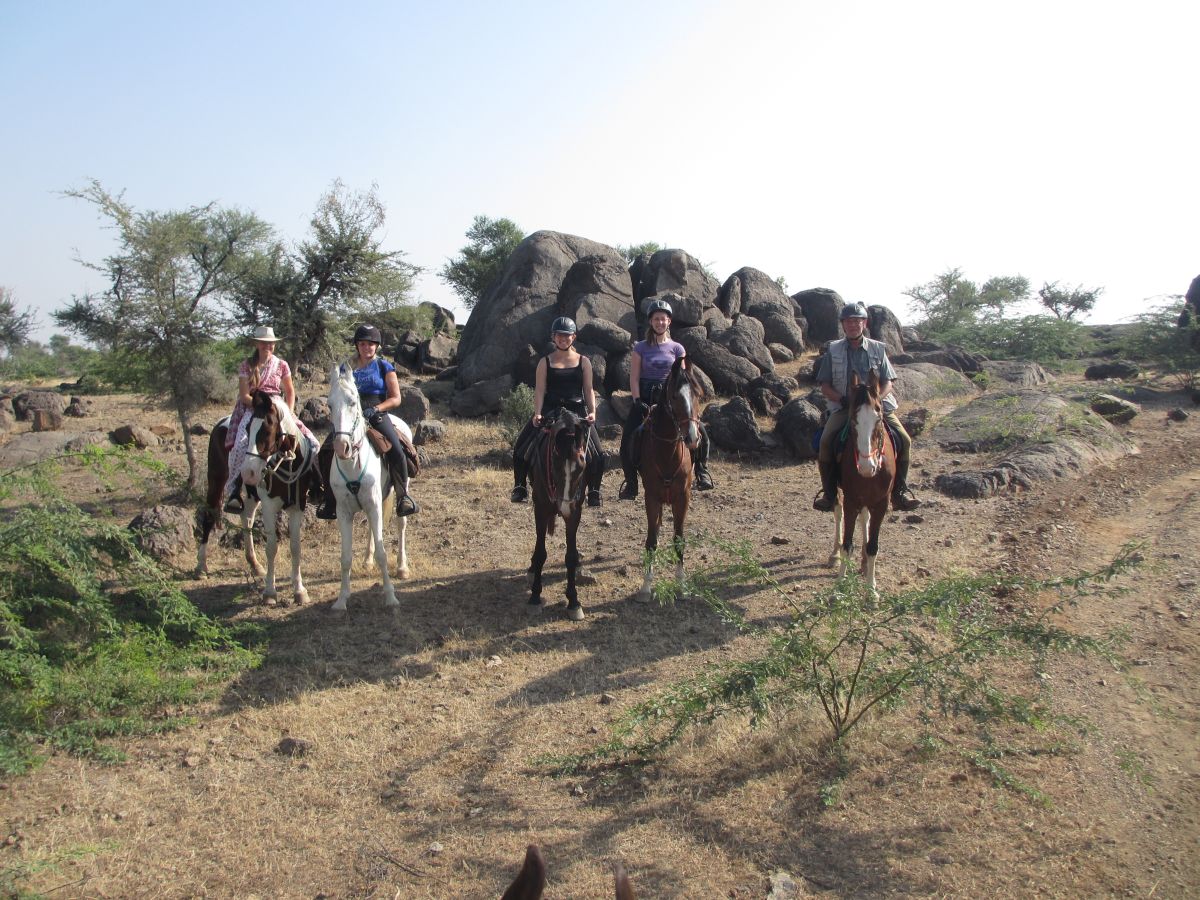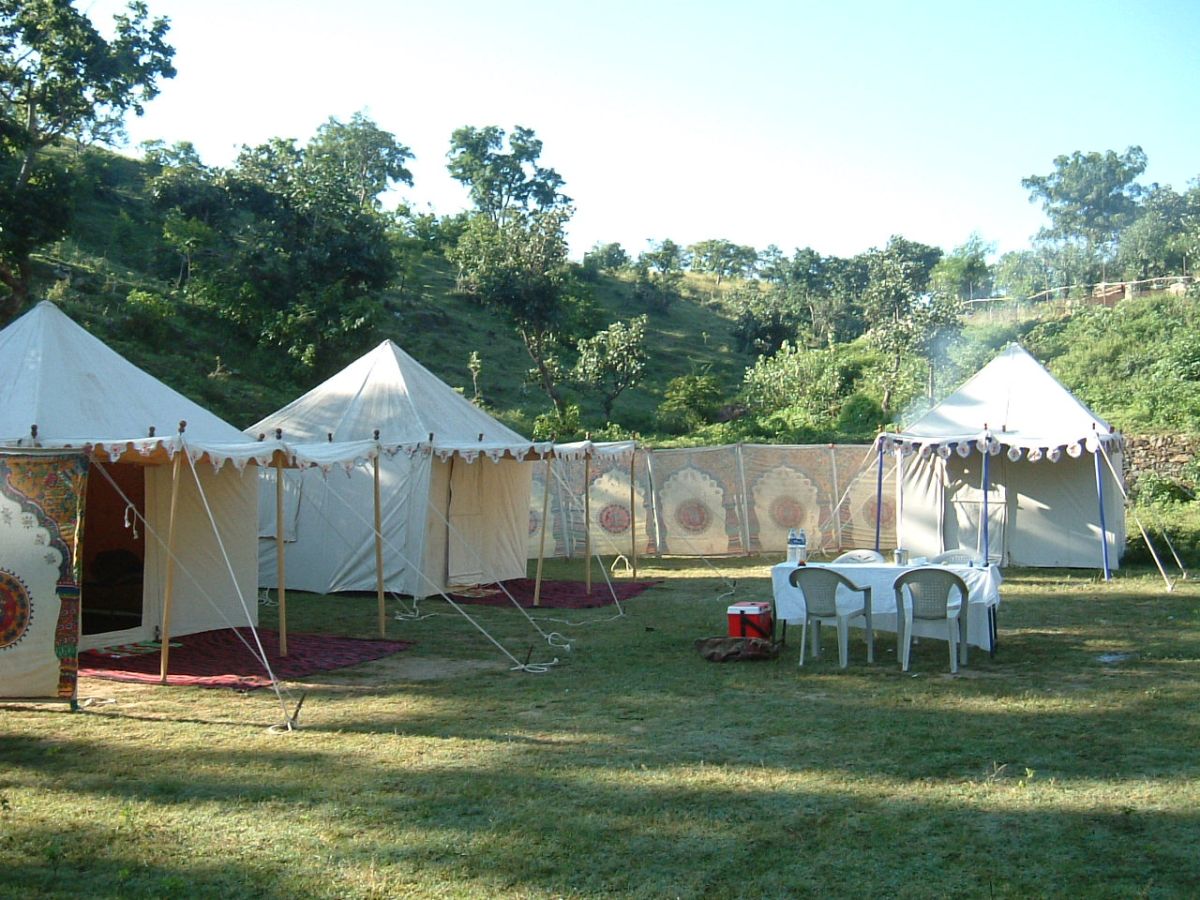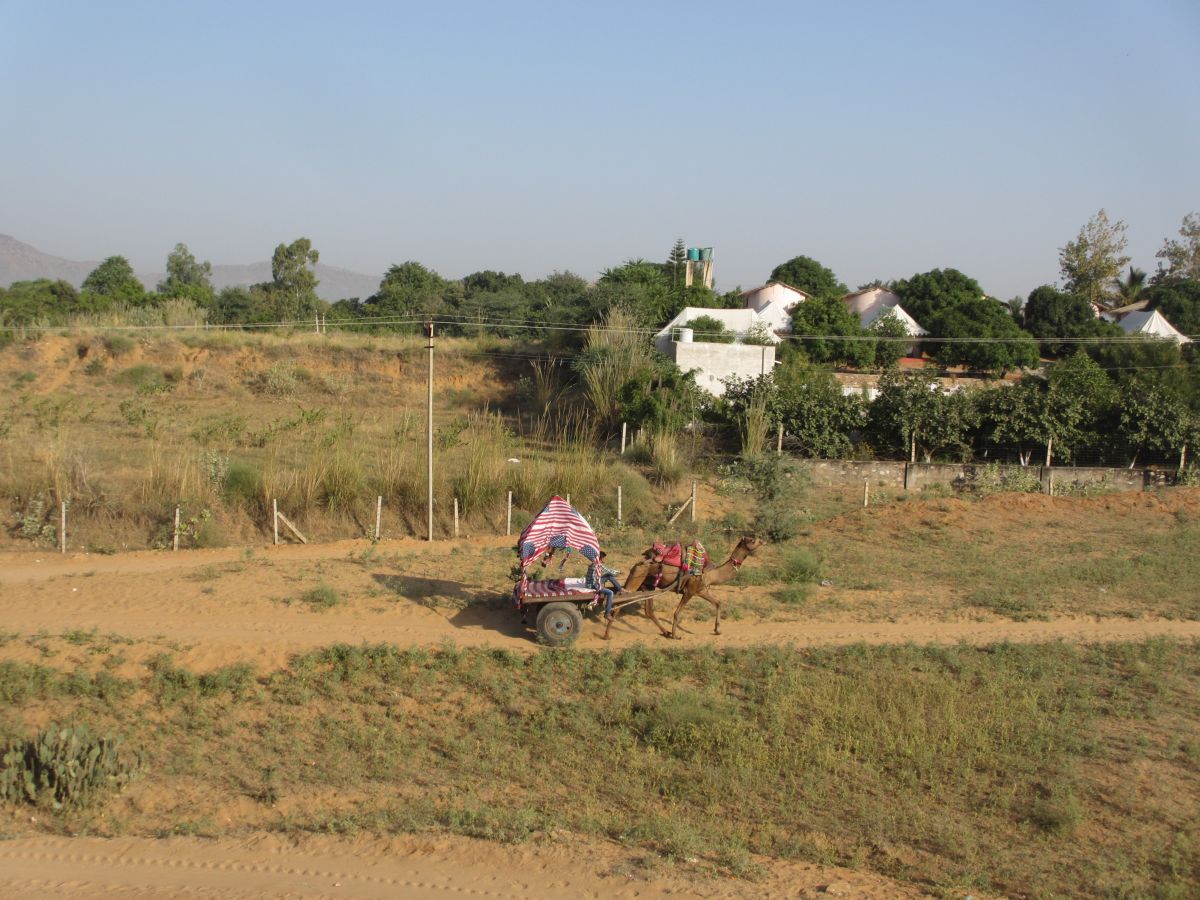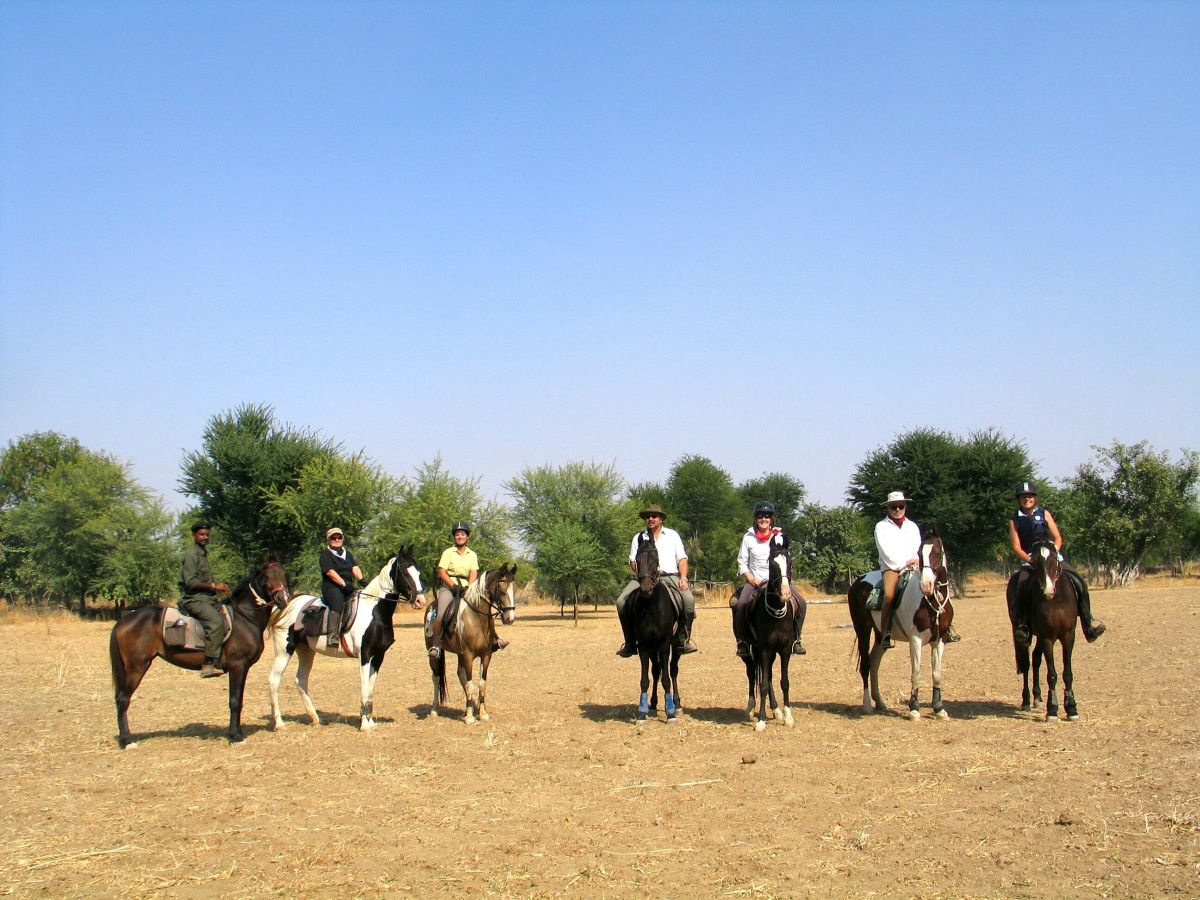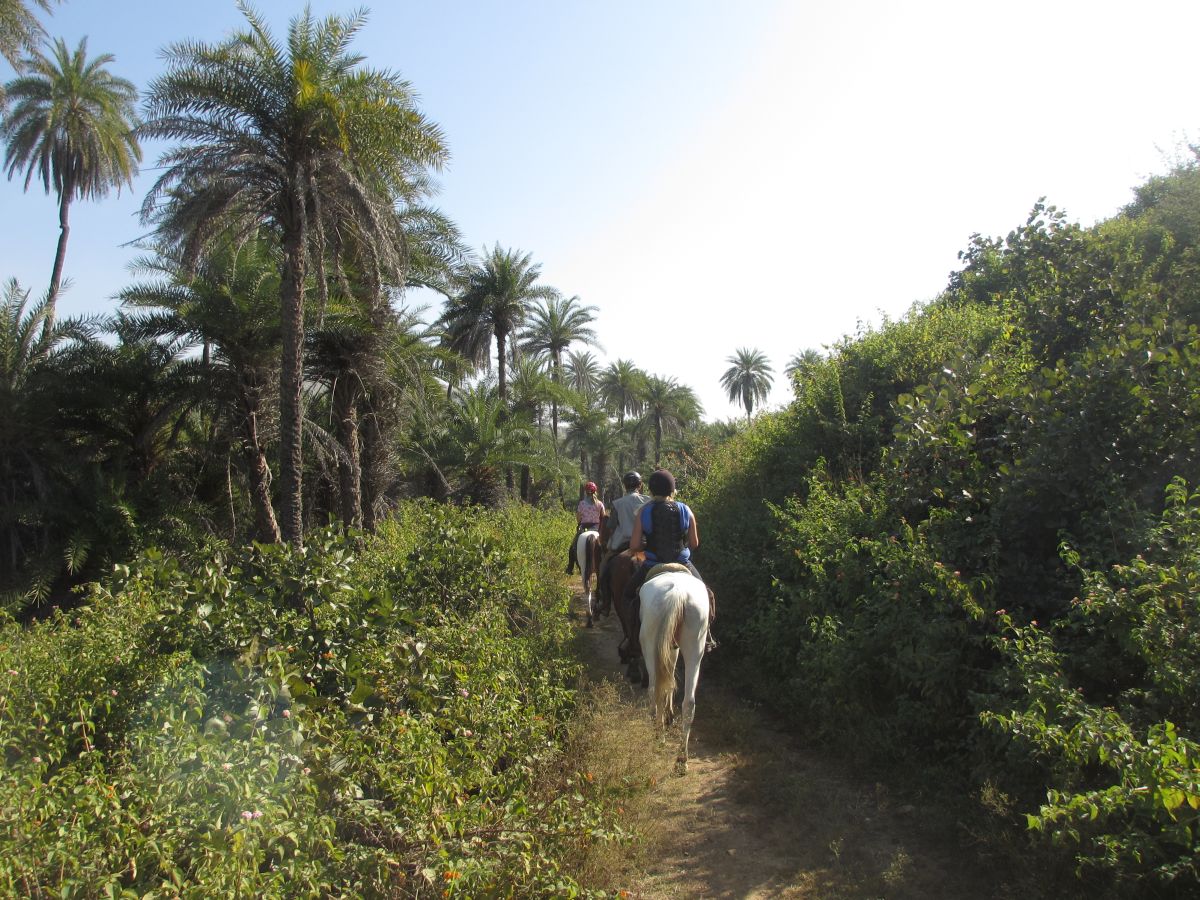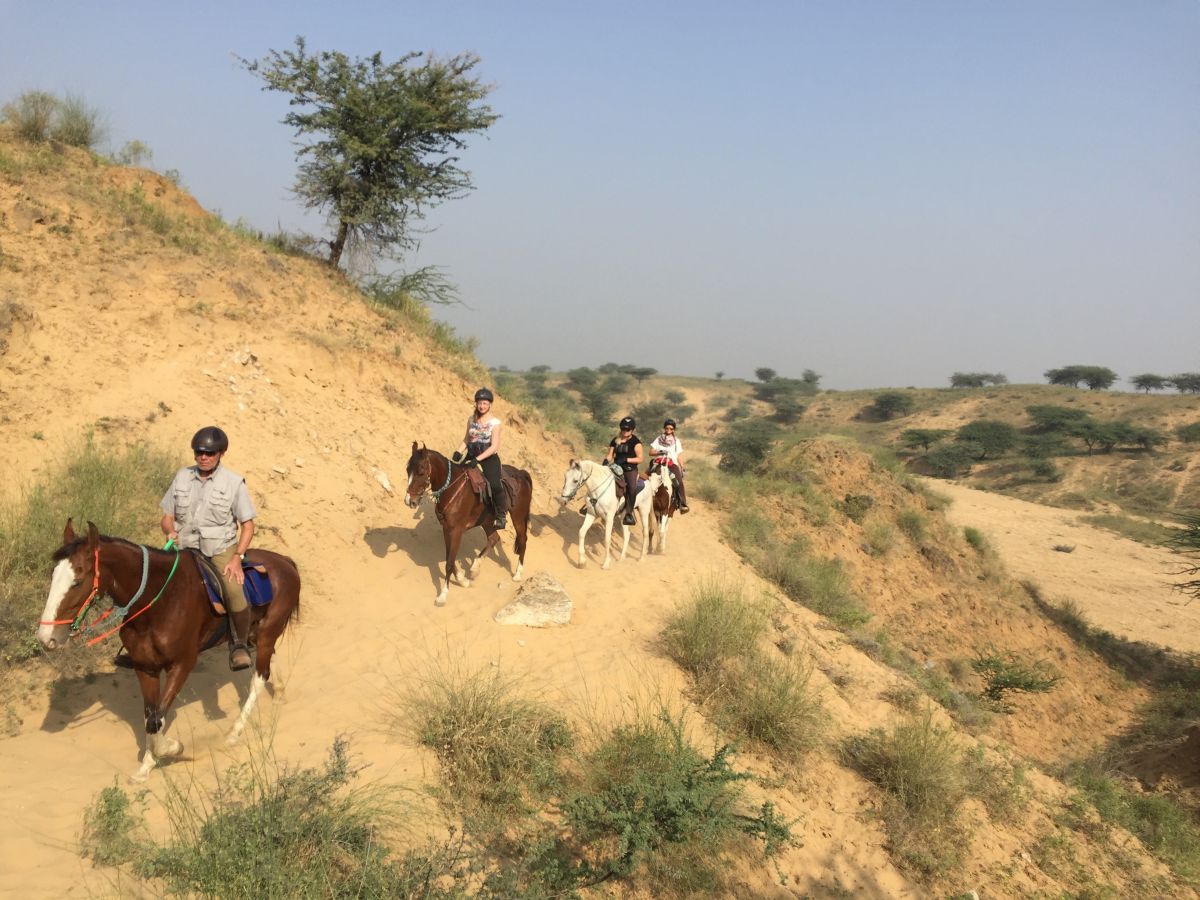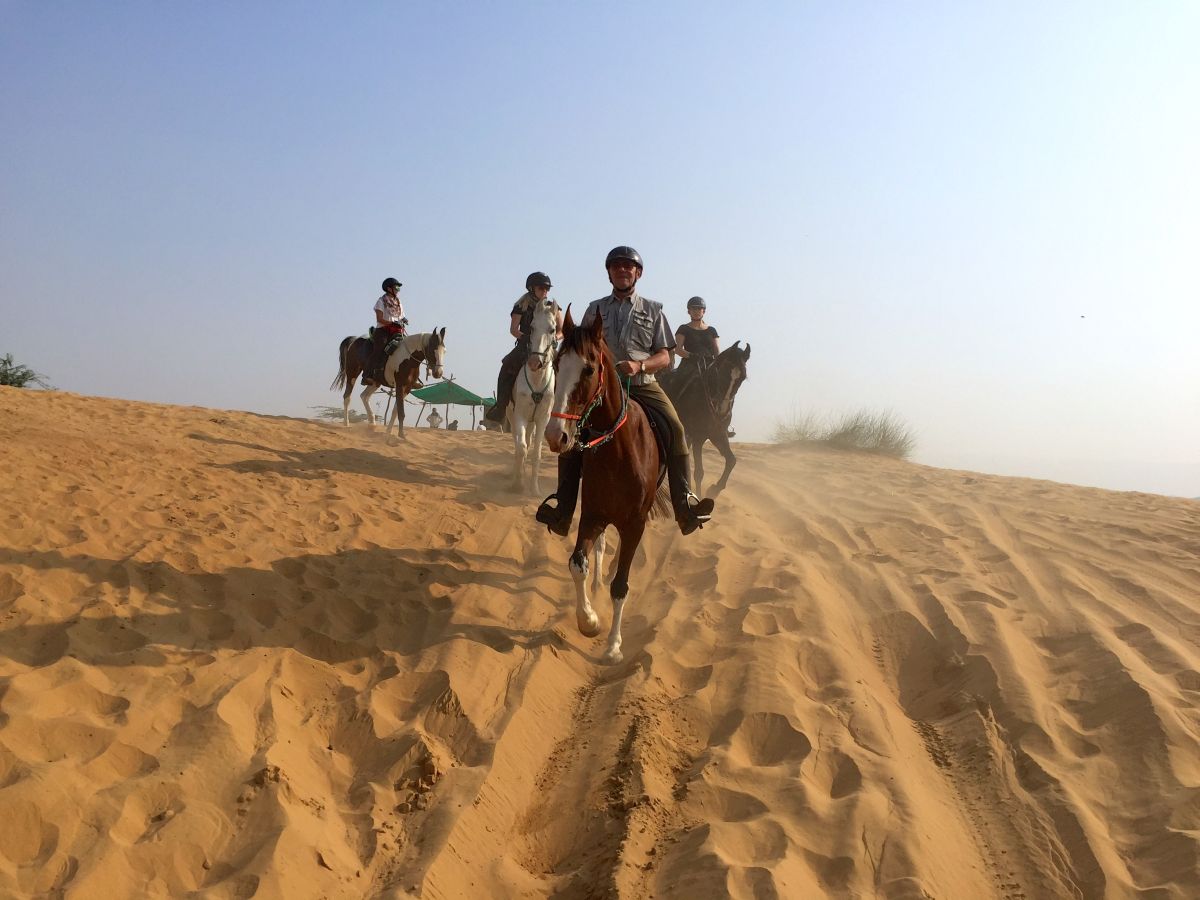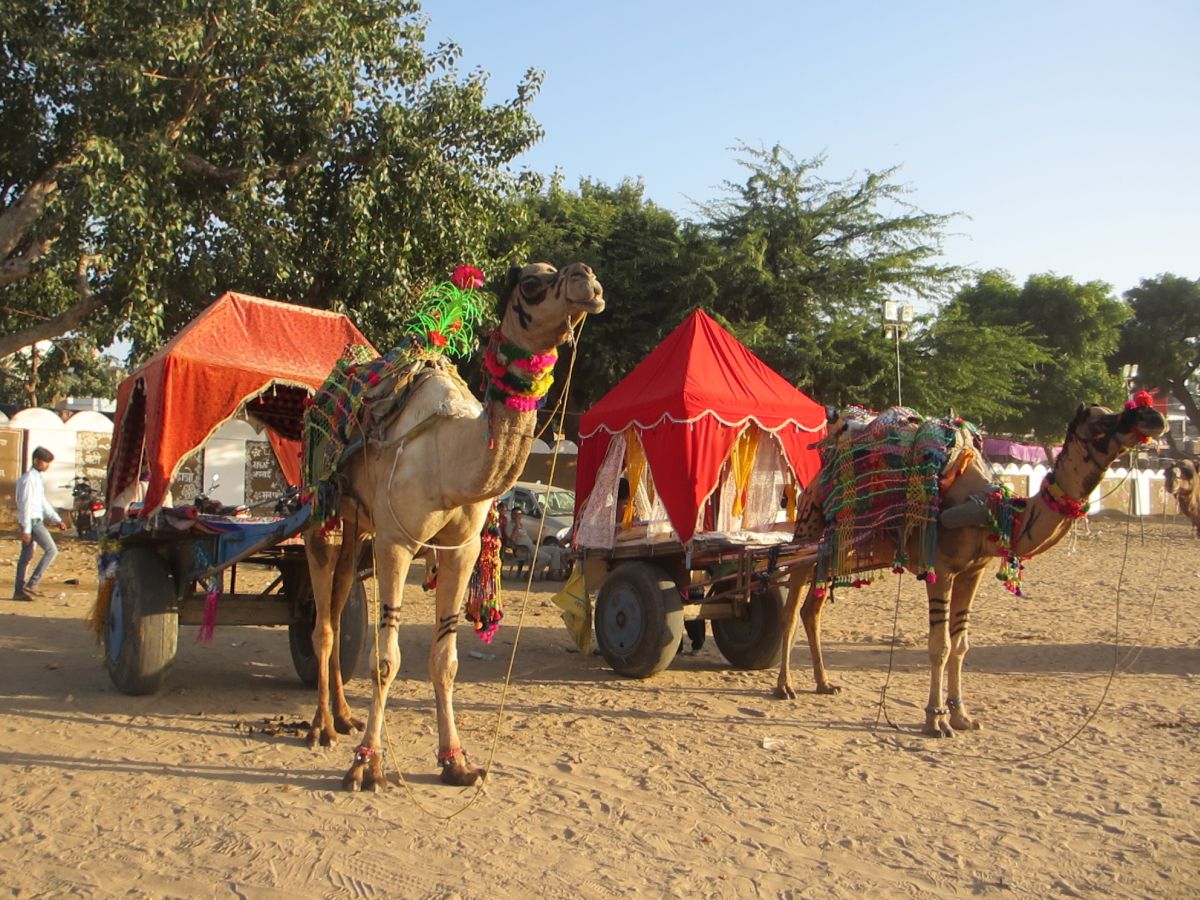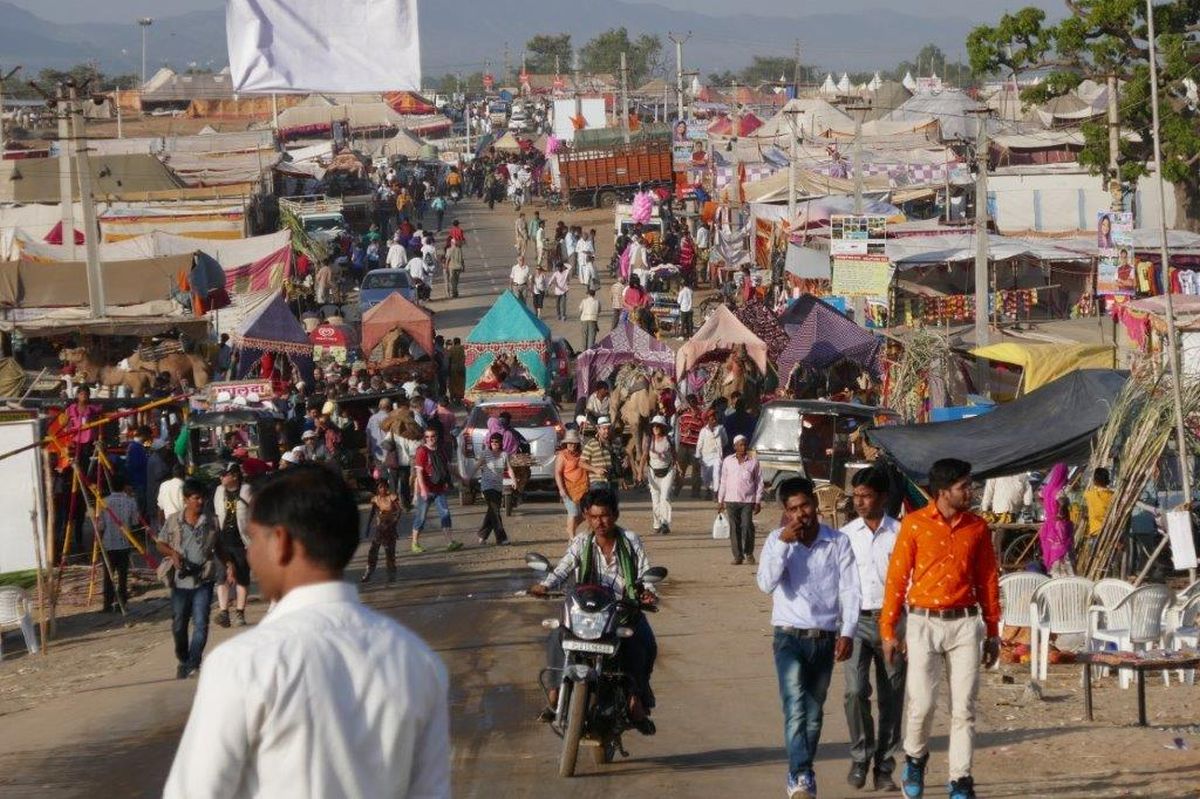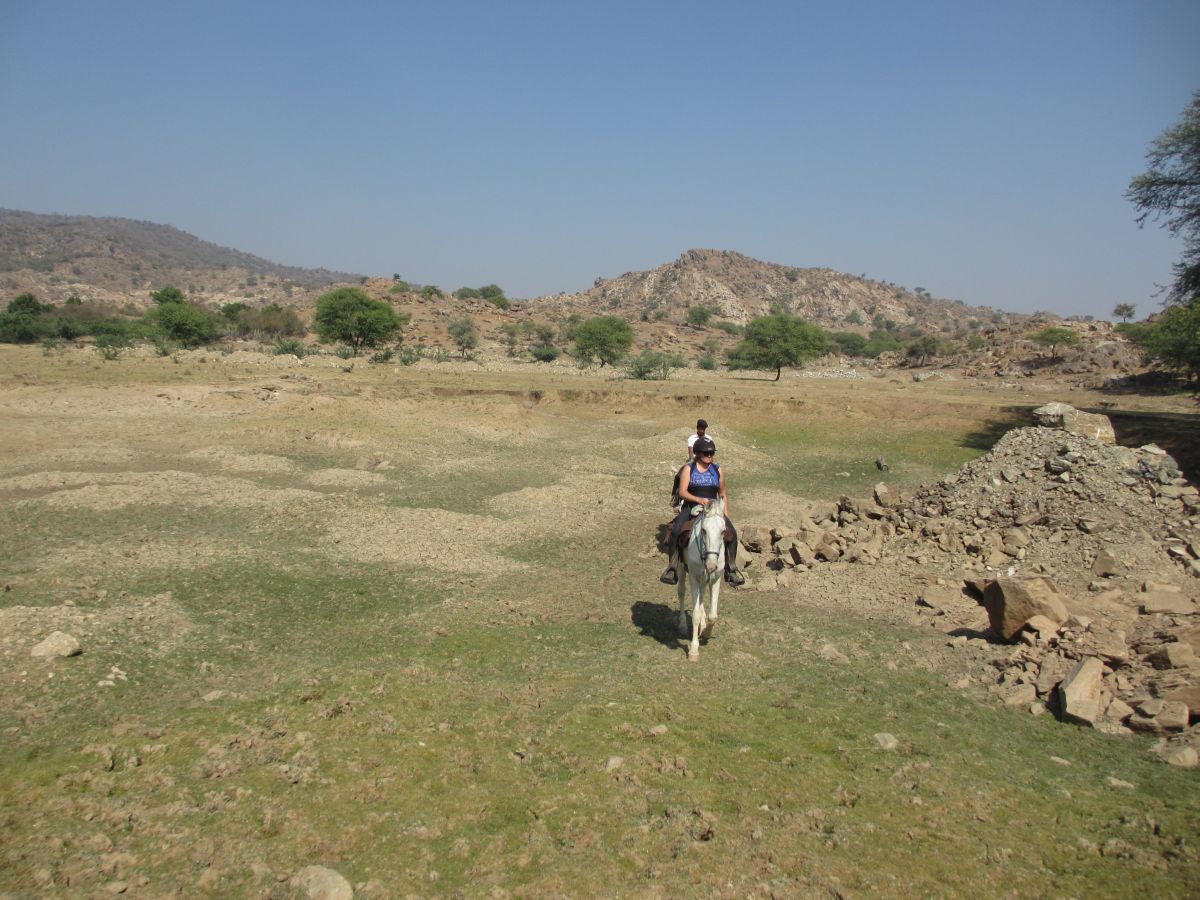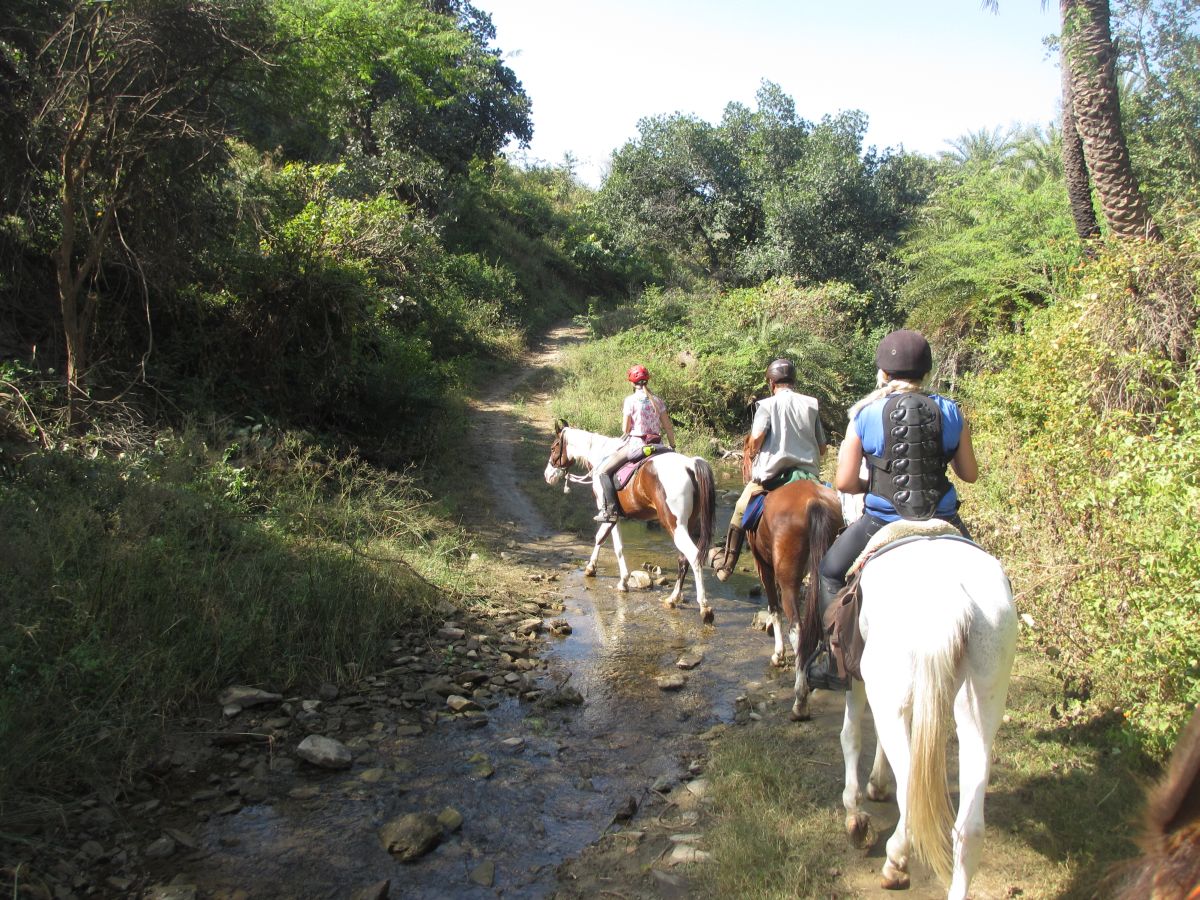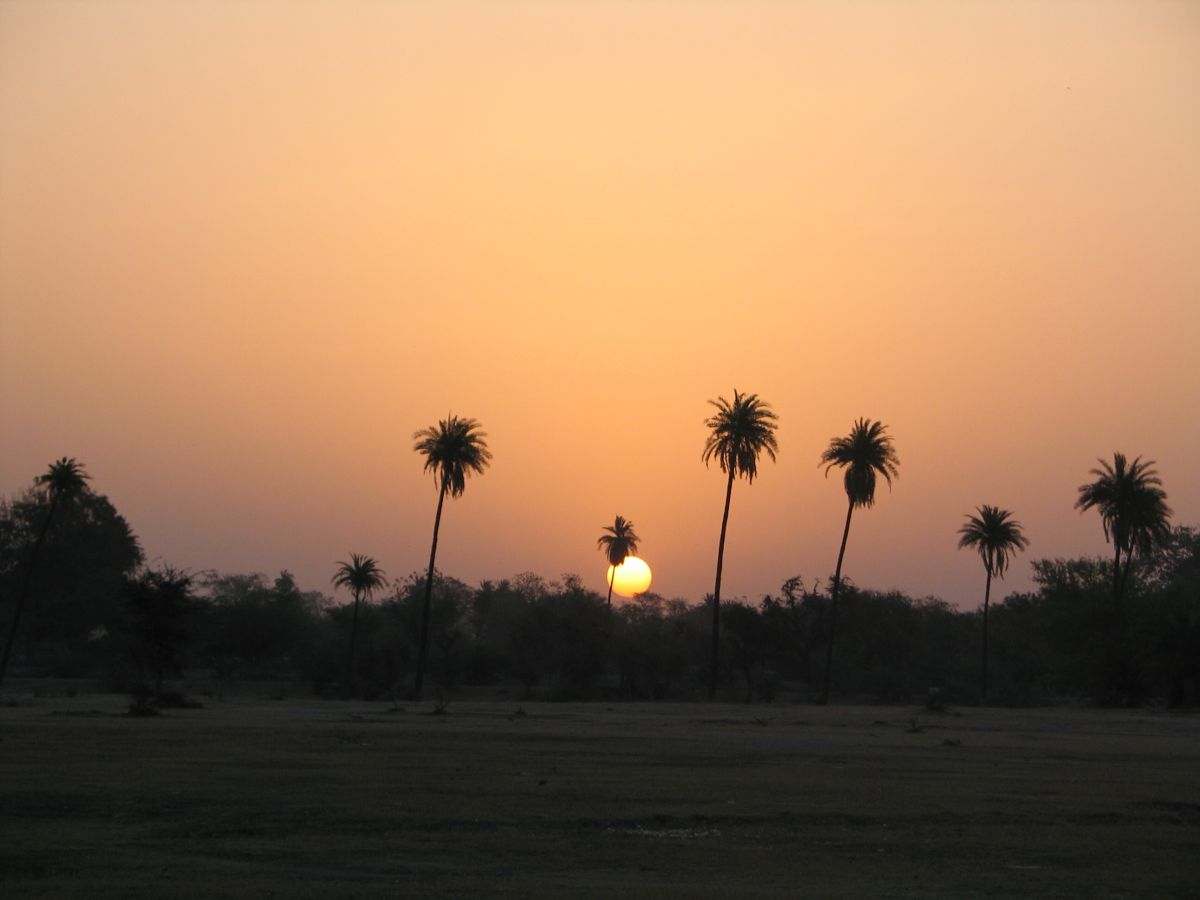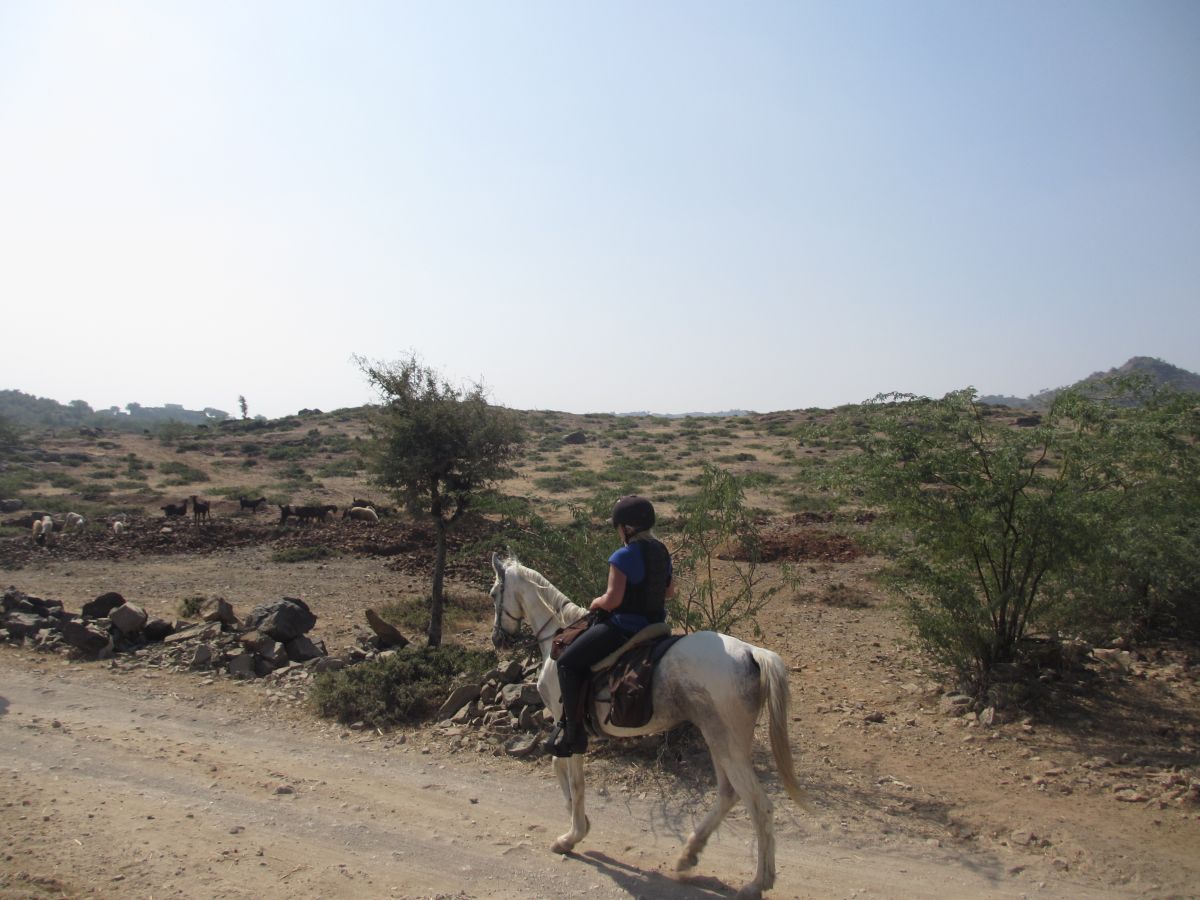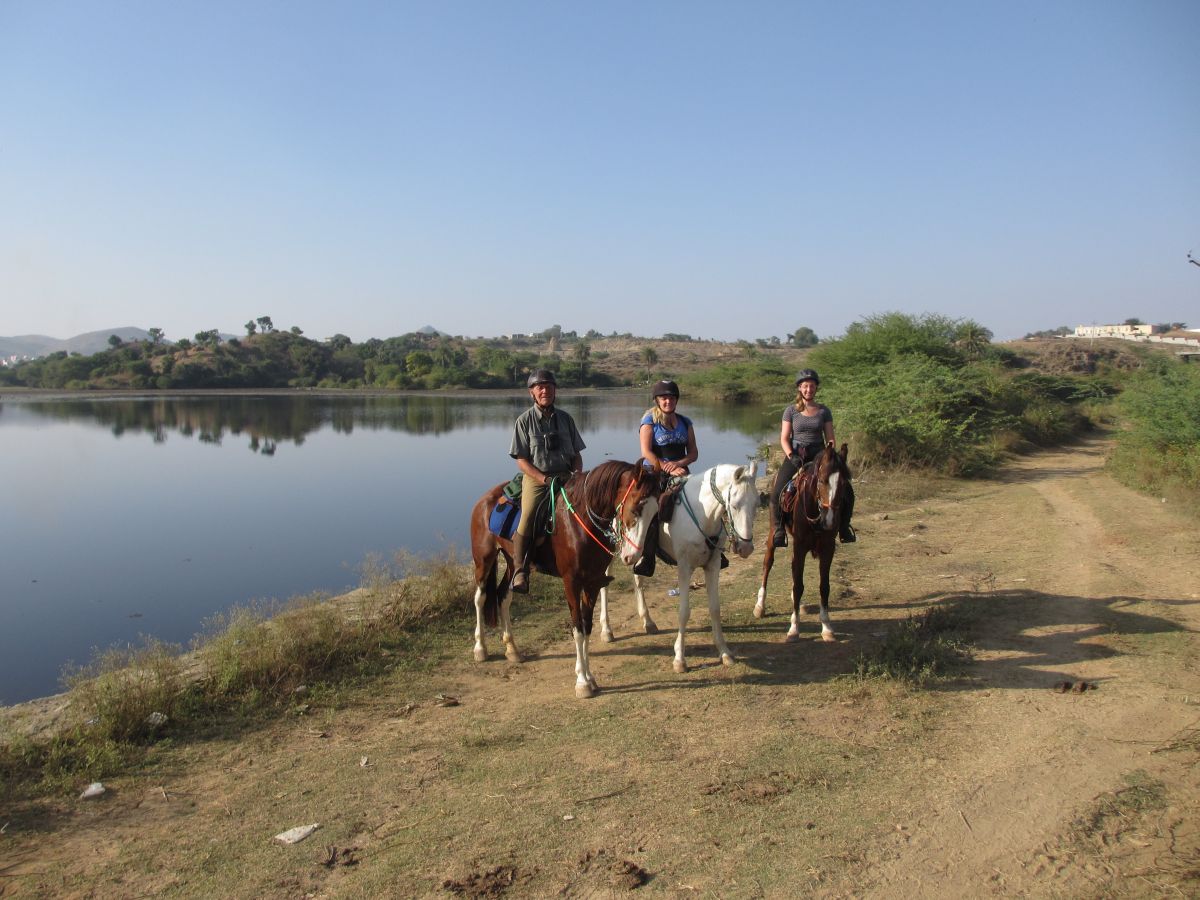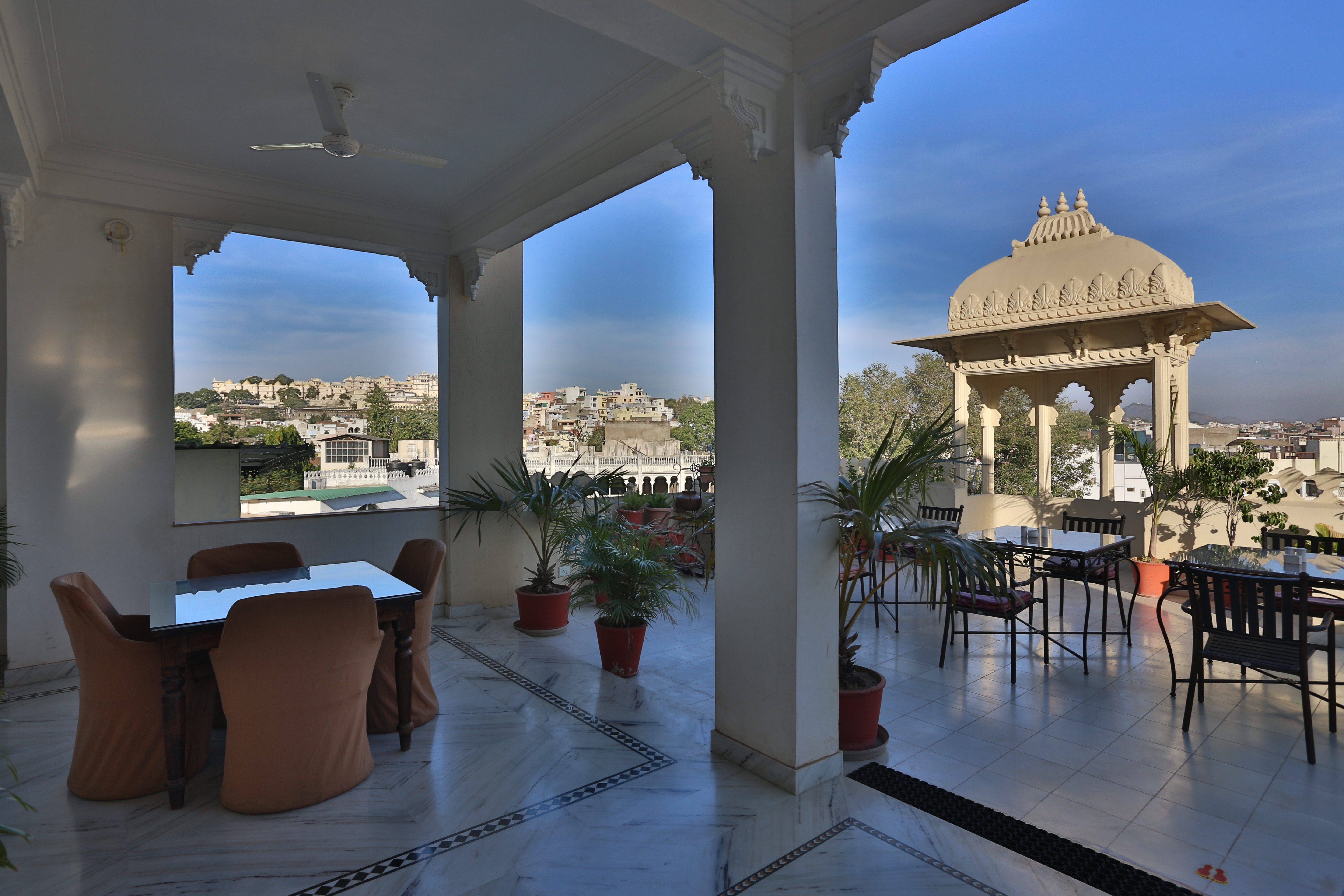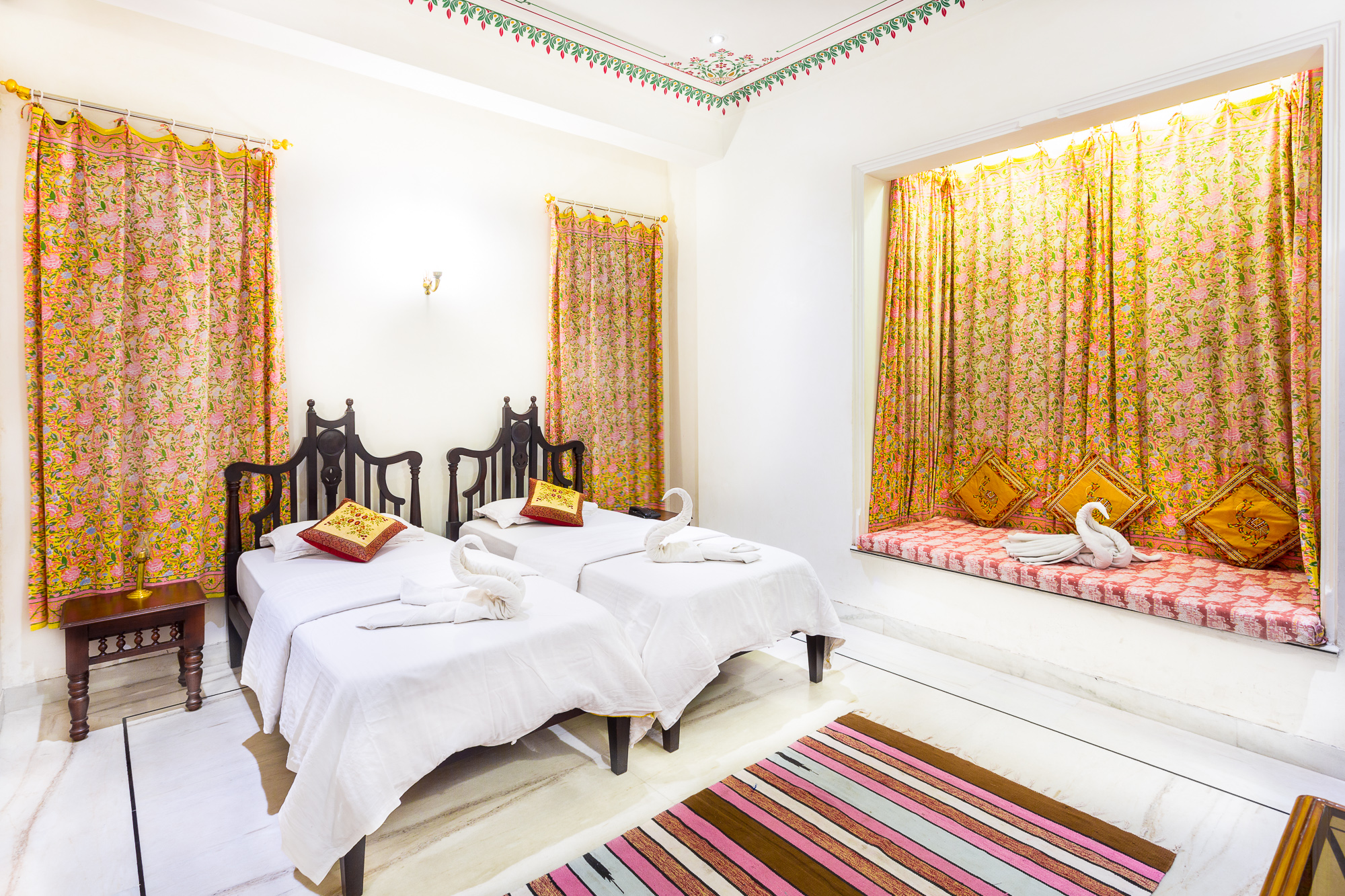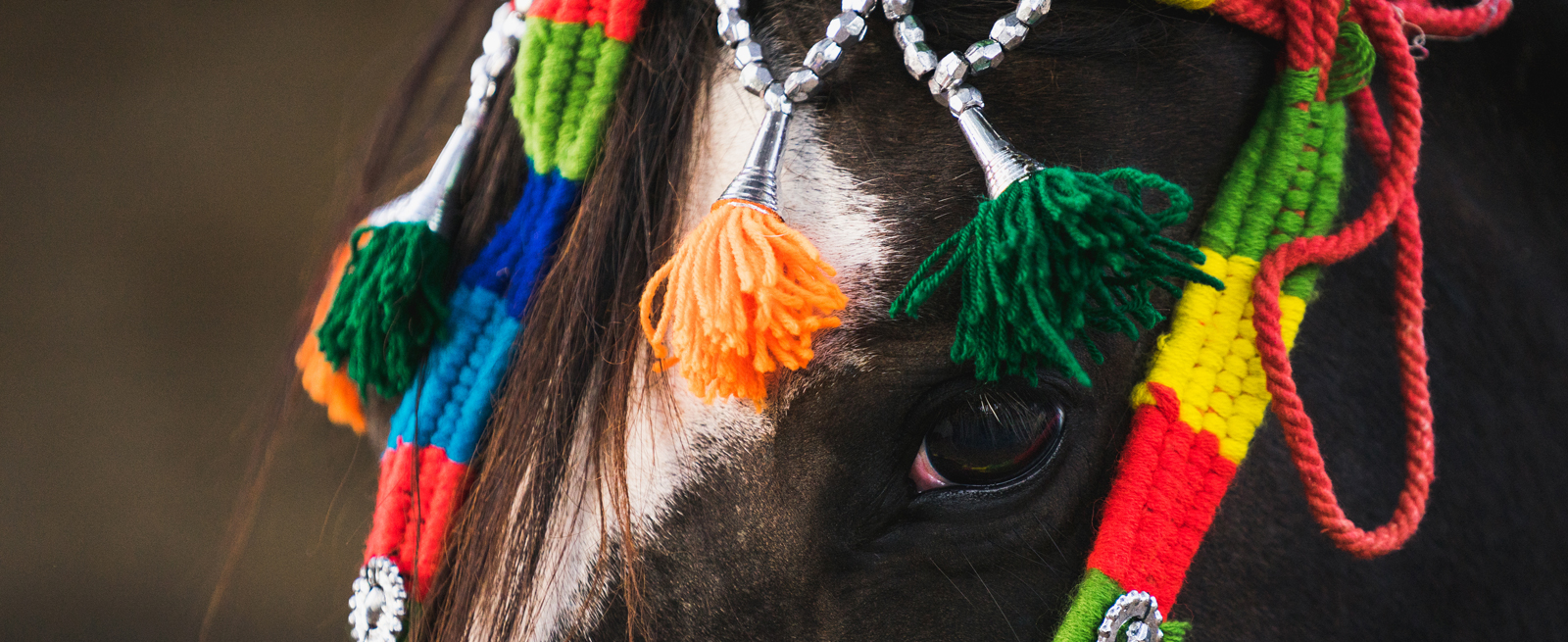

Trail | Pushkar Trail - Horse Safari in India
Unique ride to the big camel market in Pushkar

Trail | Pushkar Trail - Horse Safari in India
Unique ride to the big camel market in Pushkar
Kurzinformation
Webcode: INP010
Programmart: Trail
Reisezeit: Fixed dates
Unterkunft: Hotel, Camp
Verpflegung: Full board
Zimmer: Double, tent
Sprache: English, German
Nichtreiter: yes
Kinder: upon request
Eigenes Pferd: no
Gruppengrösse / Mitreiter
Min: 2
Max: 8
Unser Tipp
Experience the unique atmosphere of this great festival in Pushkar and immerse yourself in the real country life in India! This horse safari offers you unique insights into the culture of the country. You will be able to enjoy the famous Mawari horses which you will ride on this tour.Beschreibung & Reiseverlauf
Experience the real India on this horse safari in Northern India, Rajasthan - you have the unique chance to visit the big annual camel market in Pushkar. Riding to Pushkar on horseback is certainly a very special way to experience this festival, and by the way, it is a horse safari that is especially scenic and you will enjoy it on the famous Marwari horses! The trail starts in the Aravalli Mountains and leads through initially hilly and forested terrain over steppe to the desert landscape of Pushkar. The riders experience small villages and encounters with locals, forts and castles on their ride. But the highlight is certainly the Pushkar festival. On the evening of arrival the riders have the opportunity to see the cultural programme and spend another full day in Pushkar. Depending on the riders´ wishes a ride over the market or in the closer surroundings of Pushkar can be organized. Departure is the following morning. The camel market in Pushkar is certainly one of the most interesting Indian festivals, a mixture of pilgrimage festival and cattle market. It has managed to keep its original character and is still one of the most important cattle markets in India. Every year about 20,000 camels and 10,000 horses and cattle are traded, buyers come from all over India to buy coveted Marwari horses, riding and load camels and Nagaur cattle. The small town of Pushkar is situated on the edge of the Thar Desert and the market takes place on some large sand dunes outside.
Besides the cattle market, the Pushkar Fair is also, above all, a religious festival of the Hindus, who take a bath in Pushkar Lake on the night of the full moon. This is supposed to cleanse them from all sins and promise them a rebirth in a higher caste. Of course the Pushkar Fair also has a folk festival character. Hundreds of small stalls sell simply everything, in the evening there is a fair with a shooting gallery and a big wheel and everywhere artists, performers or acrobats show their work of art.
The Rajasthan Tourism Authority has recognized the potential of this festival and has been organizing its own program of dances, competitions and cultural events for several years. In addition, there are horse, camel and chariot races, breeding shows and demonstrations such as horse dance or Revaal performances (the Revaal is the 4th gait of marwari horses, similar to the tölt).
So it is worthwhile to stay in Pushkar for a few days and enjoy all the performances and the colourful hustle and bustle.
Reiseverlauf
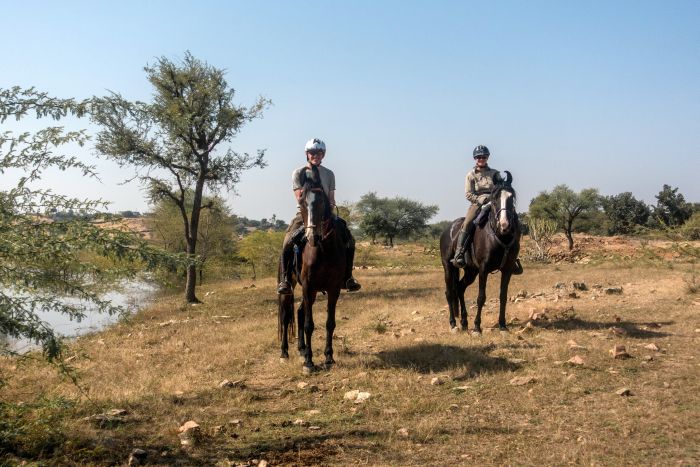
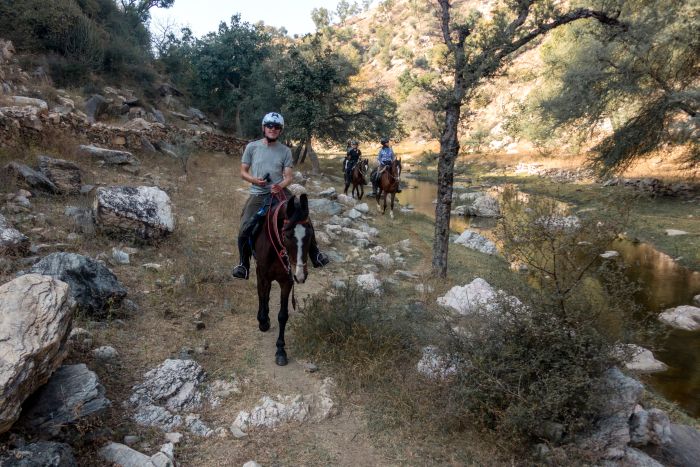
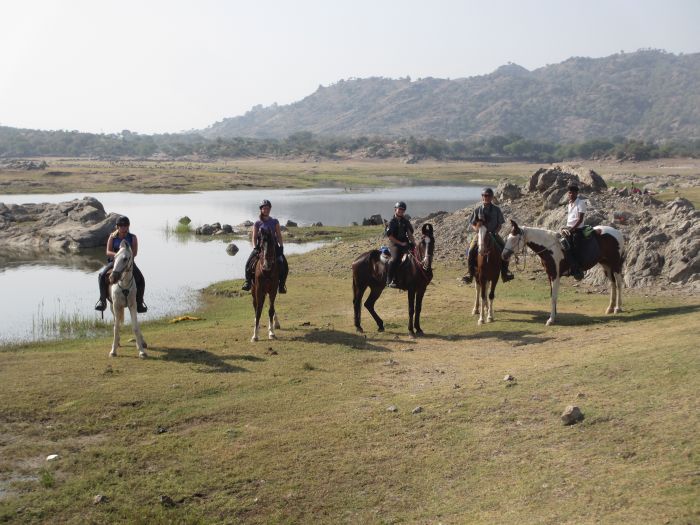
Day 1: Arrival in Udaipur
The riders will arrive in Udaipur during the morning. They will be picked up from the airport and transferred to your comfortable middle class hotel in Indian style. A first sightseeing program in Udaipur awaits you in the afternoon, if you wish. You will have the opportunity to visit the palace in Udaipur, take a boat trip to see the historic centre of the city from the water or see Udaipur´s legendary gardens. In the evening we will have dinner together and then spend the night in a middle class hotel.
Day 2: Udaipur - Deogarh
After a hearty breakfast you will leave and be taken by car to your first safari camp near the historic town of Deogarh. If time permits, the temple complex in Nagda can be visited on the way. The Sas-Bahu temple here dates from the 9th century and features exquisite stone carvings, many of them of an erotic nature. Arrival in Deogarh around noon. After lunch in the camp the horses will be distributed and you will start for a 2 hour ride through the surroundings. After returning to the camp, the riders can watch the sunset at the lake. Overnight stay at the Safari Camp on the shore of a small lake.
Day 3: Deogarh - Sohangarh
Today is the first real riding day. Departure after breakfast and day´s ride through the mountains. On the way you will pass small villages where time seems to have stopped. The heavy farm work is still done with oxen and the traditional means of transport is the camel cart. The landscape becomes dry and rocky. A ridge of the Aravall mountains is your constant companion. Around noon you will reach an area where marble and granite are mined. You ride partly directly past the edges of the quarry and can have a look at the open-cast mine. In the afternoon the landscape becomes more open and you enjoy long soft sandy paths, which invite you to trot and gallop. Today your camp is located directly at the former hunting seat of a noble family. The inhabitants, two brothers and their families like to visit the camp from time to time and talk to you. Overnight stay in the safari camp.
Day 4: Sohandgarha - Lalpura
Today the ride leads over some foothills of the Aravalli Mountains. Light jungle covers the hilly landscape. Horse and rider make their way along narrow paths through the mountains. In between are small villages and temples. In this area you can always observe smaller animals and above all a variety of birds. Along watercourses you can find kingfishers, in the undergrowth peacocks walk along and in the trees and bushes you can see typical Indian birds like Minas, hoopoes or Hornbills. Arrival at the safari camp in the late afternoon and overnight in the camp.
Day 5: Lalpur - Jawaja
Today you will cross a ridge of the Aravalli Mountains. After breakfast you will start your ascent. Along the way there are small villages where you can get to know the typical Indian country life. Men with colourful turbans and huge moustaches cultivate their fields with the help of oxen. Camels haul lorries and women in colourful saris carry their clay jugs with water on their heads home from the village well. Now and then the trail passes a small temple with many colourful prayer flags waving. The landscape today is barren, often stony and rocky. Again and again the view wanders into the distance over the mountains. From the early afternoon on the trail slowly descends again on stony paths, over which the horses climb nimbly and without problems. Arrival at the safari camp in the late afternoon.
Day 6: Jawaja - Near Kharwa
The ridge of the Aravalli Mountains is now behind you and today you will ride through a gentle hilly landscape. In the wilder areas you can see grazing Nilgai antelopes. This largest antelope species, whose name means blue cow by the way, is reminiscent of the African eland, the males are steel blue and the females brownish. The region around Jawaja is mainly home to Indian tribes, mainly the Bhils. Anthropologists consider them to be the indigenous people of the Indian subcontinent, although their way of life has now adapted greatly to that of Hindus. Nevertheless, Bhil villages can generally be recognized. The houses are mostly built of clay and are situated on a small hill. Outside there is often a fence made of thorny branches, which give the village a warlike appearance. Arrival at safari camp in the late afternoon.
Day 7: Near Kharwa - Sarsari
The Aravalli Mountains are behind you again today and the landscape is getting drier and drier. Often you will now meet herds of camels or cows, which are brought to Pushkar or come from there. The ground becomes sandy and soft and invites you to long gallops. Trees become rarer and only adapted species survive on the dry ground. Towards late morning you will arrive at the small town of Kharwa. A huge fort is located in the city centre and a highway passes directly by the city. Here you have to go through an underpass to get sand soil under your hooves on the other side. Occasionally you will meet camels. In this area they are the most common means of transport and you can always admire these long-legged animals. Arrival at the safari camp in the afternoon.
Day 8: Sarsari- Pushkar
The last stage to Pushkar leads you through wild semi-desert, past small hamlets whose inhabitants try with great difficulty to extract a meagre yield from the dry soil. You will now encounter more and more animals and people on the way to Pushkar Fair. From noon on the trail already leads through desert sand. A narrow mountain range appears on the horizon, which accompanies you on your way to Pushkar. Today´s stage is long and the pace is fast. The horses enjoy the soft ground under their hooves and you make fast progress. Pushkar is reached in the afternoon, the two temples, situated on mountain tops above Pushkar, can be seen from far away and offer you a good orientation. On the way to your safari camp you will cross the foothills of the Pushkar Fair with its large tent camps. Arrival at the safari camp around 16.00 hrs. After a shower and a small refreshment you will have the opportunity to get a first impression of Pushkar and the fair. Possibly the group can visit the evening events of the Tourism Board of Rajasthan. Overnight stay in the safari camp in Pushkar.
Day 9: Pushkar
Today a morning ride over the awakening market is on the program. This is the best time to explore the market and the dunes around Pushkar on horseback. You will start at sunrise and have breakfast afterwards (coffee and tea will be served before the ride). The early morning has its own magic and a gallop through the dunes of Pushkar is one of the highlights of the safari. After returning to the camp breakfast is served and afterwards the riders have the opportunity to explore Pushkar city and the market on their own. This can be done very well on foot or by camel. Overnight stay in the safari camp in Pushkar.
Day 10: Departure after breakfast.
Note: On the second date the tour is backwards, i.e. starting with the Pushkar Fair, ending in Udaipur.
Changes are possible at any time.
Return options from Pushkar: By plane from Jaipur to Delhi (approx. 50,- EUR) then further from Delhi to Germany/Switzerland. From Pushkar by taxi to Jaipur approx. 2,5 hours drive, costs: approx. 55,- EUR per taxi (max. 3-4 pers.).
Or by express train from Ajmer to Delhi: The express train (Shatabdi/Rajdhani) from Ajmer to Delhi takes 7 hours and leaves Ajmer once a day in the afternoon. Costs around 25,- EUR in 1st class. (We can book the train tickets for you on request). The transfer from Pushkar to Ajmer (about 12 km) is included in the price.
Unterkunft
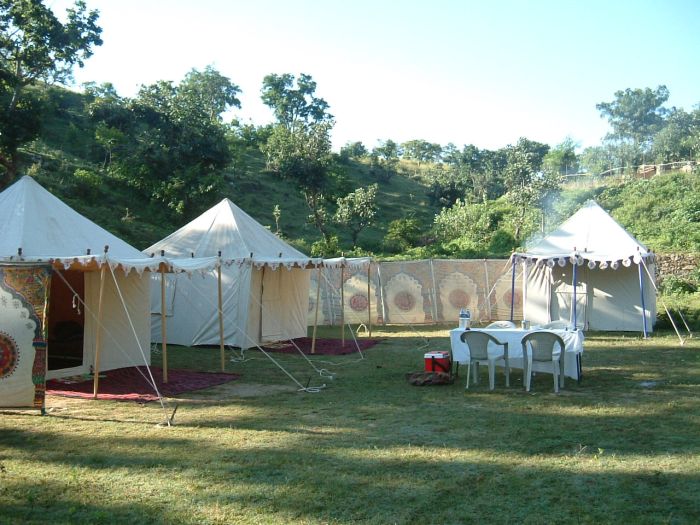
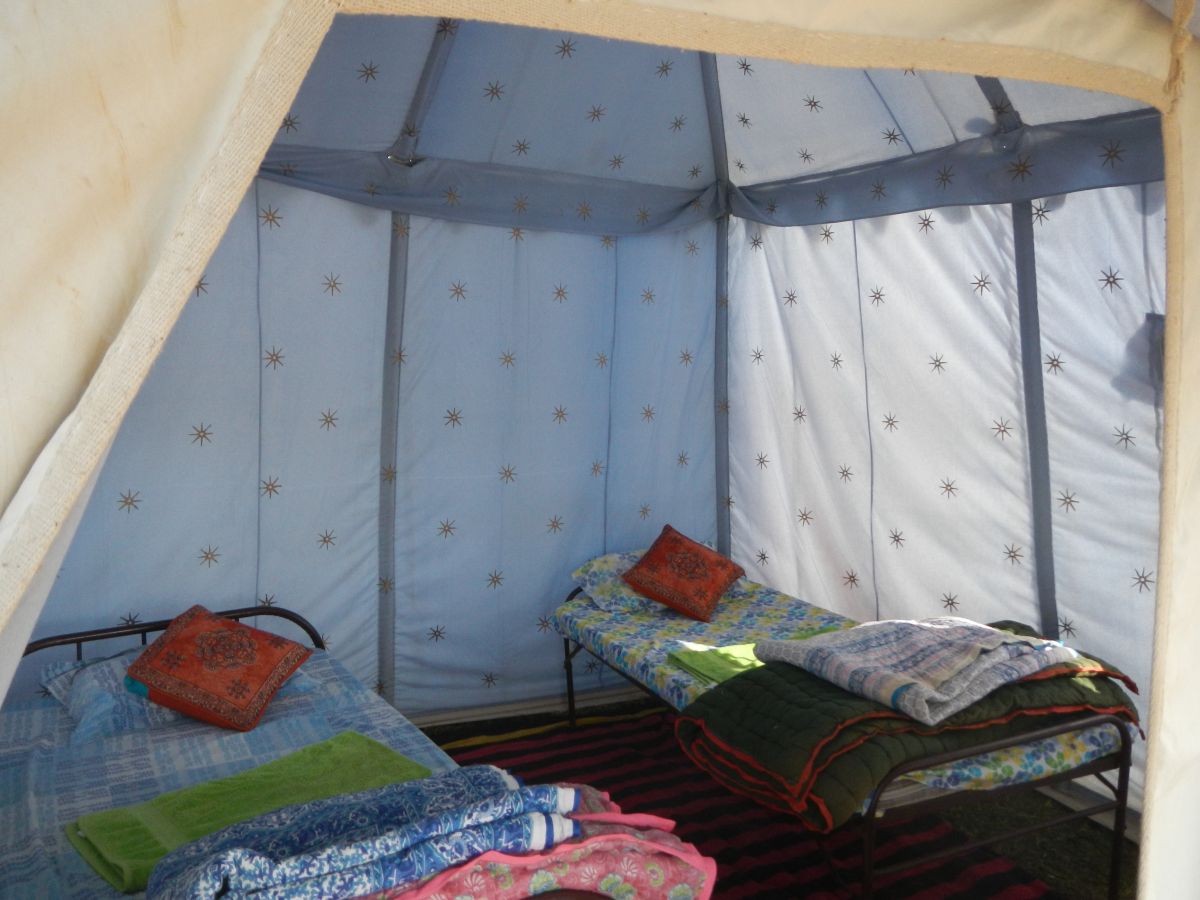
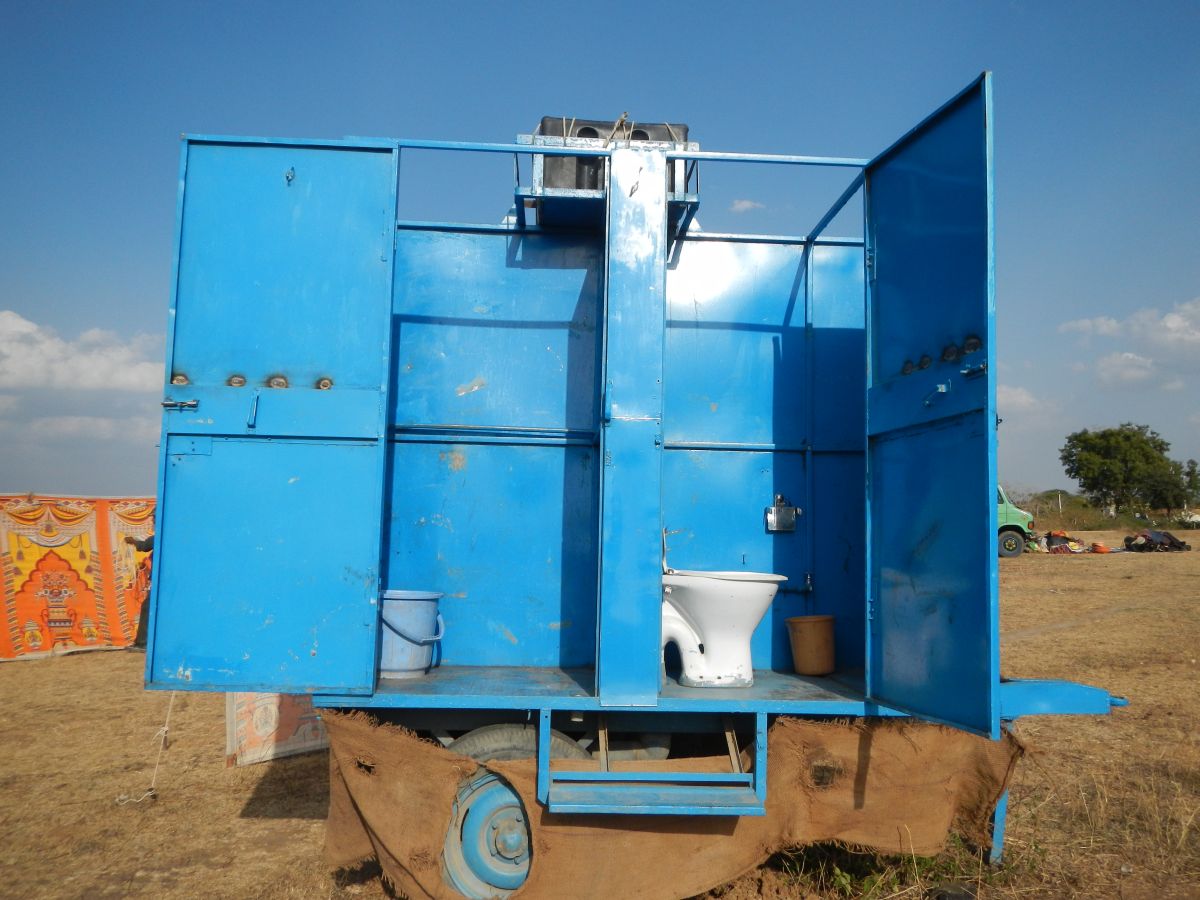
In Udaipur you will stay overnight in a good, centrally located middle class hotel.
8 overnight stays are spent in a camp.
The mobile safari camp consists of spacious, comfortable double tents, a dining area, a kitchen and a bathroom trolley. The tents are approx. 3x3 meters large and high enough to stand comfortably in. There are 2 beds with mattresses, pillows and blankets. The Bathroom Trolley is a kind of trailer with 2 toilets and 2 small shower cabins. Hot water for washing is provided in a bucket.
Pferde, Reiten & Zaumzeug
Pferde:
Marwari horses, well trained, forward going and reliable.
Sattel & Zaum:
Comfortable English saddles, water bridle and Hackamore.
Reiterfahrung: For advanced riders with experience in varied terrain, brisk riding pace and partly demanding terrain.
Kundenmeinungen & weitere Informationen
Kundenmeinungen, Informationen zum Land (wie z.B. Visabestimmungen) und Wetterinfos finden Sie bei und nur online, da sich diese täglich ändern können. Gehen Sie dafür bitte online auf www.equitour.com/inp010.htm
Preise & Termine
|
Dates, prices, prestations
Pushkar Trail - Horse Safari in India
|
||
|
Dates |
||
|
Services and notations |
||
|
Included: 10 Tage/9 Üb., davon 1 Üb. im Mittelklassehotel, 8 Üb. im Safaricamp, VP inkl. nicht-alkoholischer Getränke, 6,5 Reittage, Besichtigungen laut Programm, Deutsch und/oder Englisch sprechende Reiseleitung, Transfers |
||
|
Prices |
||
|
In a nutshell

Webcode: INP010
Program Type: Trail
Travel Time: Fixed dates
Lodging: Hotel, Camp
Catering: Full board
Accomodation: Double, tent
Language: English, German
Non Riders: yes
Kids: upon request
Own Horse: no
Group Size
Min: 2
Max: 8
Our Tipp
Experience the unique atmosphere of this great festival in Pushkar and immerse yourself in the real country life in India! This horse safari offers you unique insights into the culture of the country. You will be able to enjoy the famous Mawari horses which you will ride on this tour.Experience the real India on this horse safari in Northern India, Rajasthan - you have the unique chance to visit the big annual camel market in Pushkar. Riding to Pushkar on horseback is certainly a very special way to experience this festival, and by the way, it is a horse safari that is especially scenic and you will enjoy it on the famous Marwari horses! The trail starts in the Aravalli Mountains and leads through initially hilly and forested terrain over steppe to the desert landscape of Pushkar. The riders experience small villages and encounters with locals, forts and castles on their ride. But the highlight is certainly the Pushkar festival. On the evening of arrival the riders have the opportunity to see the cultural programme and spend another full day in Pushkar. Depending on the riders´ wishes a ride over the market or in the closer surroundings of Pushkar can be organized. Departure is the following morning. The camel market in Pushkar is certainly one of the most interesting Indian festivals, a mixture of pilgrimage festival and cattle market. It has managed to keep its original character and is still one of the most important cattle markets in India. Every year about 20,000 camels and 10,000 horses and cattle are traded, buyers come from all over India to buy coveted Marwari horses, riding and load camels and Nagaur cattle. The small town of Pushkar is situated on the edge of the Thar Desert and the market takes place on some large sand dunes outside.
Besides the cattle market, the Pushkar Fair is also, above all, a religious festival of the Hindus, who take a bath in Pushkar Lake on the night of the full moon. This is supposed to cleanse them from all sins and promise them a rebirth in a higher caste. Of course the Pushkar Fair also has a folk festival character. Hundreds of small stalls sell simply everything, in the evening there is a fair with a shooting gallery and a big wheel and everywhere artists, performers or acrobats show their work of art.
The Rajasthan Tourism Authority has recognized the potential of this festival and has been organizing its own program of dances, competitions and cultural events for several years. In addition, there are horse, camel and chariot races, breeding shows and demonstrations such as horse dance or Revaal performances (the Revaal is the 4th gait of marwari horses, similar to the tölt).
So it is worthwhile to stay in Pushkar for a few days and enjoy all the performances and the colourful hustle and bustle.
Itinerary
Day 1: Arrival in UdaipurThe riders will arrive in Udaipur during the morning. They will be picked up from the airport and transferred to your comfortable middle class hotel in Indian style. A first sightseeing program in Udaipur awaits you in the afternoon, if you wish. You will have the opportunity to visit the palace in Udaipur, take a boat trip to see the historic centre of the city from the water or see Udaipur´s legendary gardens. In the evening we will have dinner together and then spend the night in a middle class hotel.
Day 2: Udaipur - Deogarh
After a hearty breakfast you will leave and be taken by car to your first safari camp near the historic town of Deogarh. If time permits, the temple complex in Nagda can be visited on the way. The Sas-Bahu temple here dates from the 9th century and features exquisite stone carvings, many of them of an erotic nature. Arrival in Deogarh around noon. After lunch in the camp the horses will be distributed and you will start for a 2 hour ride through the surroundings. After returning to the camp, the riders can watch the sunset at the lake. Overnight stay at the Safari Camp on the shore of a small lake.
Day 3: Deogarh - Sohangarh
Today is the first real riding day. Departure after breakfast and day´s ride through the mountains. On the way you will pass small villages where time seems to have stopped. The heavy farm work is still done with oxen and the traditional means of transport is the camel cart. The landscape becomes dry and rocky. A ridge of the Aravall mountains is your constant companion. Around noon you will reach an area where marble and granite are mined. You ride partly directly past the edges of the quarry and can have a look at the open-cast mine. In the afternoon the landscape becomes more open and you enjoy long soft sandy paths, which invite you to trot and gallop. Today your camp is located directly at the former hunting seat of a noble family. The inhabitants, two brothers and their families like to visit the camp from time to time and talk to you. Overnight stay in the safari camp.
Day 4: Sohandgarha - Lalpura
Today the ride leads over some foothills of the Aravalli Mountains. Light jungle covers the hilly landscape. Horse and rider make their way along narrow paths through the mountains. In between are small villages and temples. In this area you can always observe smaller animals and above all a variety of birds. Along watercourses you can find kingfishers, in the undergrowth peacocks walk along and in the trees and bushes you can see typical Indian birds like Minas, hoopoes or Hornbills. Arrival at the safari camp in the late afternoon and overnight in the camp.
Day 5: Lalpur - Jawaja
Today you will cross a ridge of the Aravalli Mountains. After breakfast you will start your ascent. Along the way there are small villages where you can get to know the typical Indian country life. Men with colourful turbans and huge moustaches cultivate their fields with the help of oxen. Camels haul lorries and women in colourful saris carry their clay jugs with water on their heads home from the village well. Now and then the trail passes a small temple with many colourful prayer flags waving. The landscape today is barren, often stony and rocky. Again and again the view wanders into the distance over the mountains. From the early afternoon on the trail slowly descends again on stony paths, over which the horses climb nimbly and without problems. Arrival at the safari camp in the late afternoon.
Day 6: Jawaja - Near Kharwa
The ridge of the Aravalli Mountains is now behind you and today you will ride through a gentle hilly landscape. In the wilder areas you can see grazing Nilgai antelopes. This largest antelope species, whose name means blue cow by the way, is reminiscent of the African eland, the males are steel blue and the females brownish. The region around Jawaja is mainly home to Indian tribes, mainly the Bhils. Anthropologists consider them to be the indigenous people of the Indian subcontinent, although their way of life has now adapted greatly to that of Hindus. Nevertheless, Bhil villages can generally be recognized. The houses are mostly built of clay and are situated on a small hill. Outside there is often a fence made of thorny branches, which give the village a warlike appearance. Arrival at safari camp in the late afternoon.
Day 7: Near Kharwa - Sarsari
The Aravalli Mountains are behind you again today and the landscape is getting drier and drier. Often you will now meet herds of camels or cows, which are brought to Pushkar or come from there. The ground becomes sandy and soft and invites you to long gallops. Trees become rarer and only adapted species survive on the dry ground. Towards late morning you will arrive at the small town of Kharwa. A huge fort is located in the city centre and a highway passes directly by the city. Here you have to go through an underpass to get sand soil under your hooves on the other side. Occasionally you will meet camels. In this area they are the most common means of transport and you can always admire these long-legged animals. Arrival at the safari camp in the afternoon.
Day 8: Sarsari- Pushkar
The last stage to Pushkar leads you through wild semi-desert, past small hamlets whose inhabitants try with great difficulty to extract a meagre yield from the dry soil. You will now encounter more and more animals and people on the way to Pushkar Fair. From noon on the trail already leads through desert sand. A narrow mountain range appears on the horizon, which accompanies you on your way to Pushkar. Today´s stage is long and the pace is fast. The horses enjoy the soft ground under their hooves and you make fast progress. Pushkar is reached in the afternoon, the two temples, situated on mountain tops above Pushkar, can be seen from far away and offer you a good orientation. On the way to your safari camp you will cross the foothills of the Pushkar Fair with its large tent camps. Arrival at the safari camp around 16.00 hrs. After a shower and a small refreshment you will have the opportunity to get a first impression of Pushkar and the fair. Possibly the group can visit the evening events of the Tourism Board of Rajasthan. Overnight stay in the safari camp in Pushkar.
Day 9: Pushkar
Today a morning ride over the awakening market is on the program. This is the best time to explore the market and the dunes around Pushkar on horseback. You will start at sunrise and have breakfast afterwards (coffee and tea will be served before the ride). The early morning has its own magic and a gallop through the dunes of Pushkar is one of the highlights of the safari. After returning to the camp breakfast is served and afterwards the riders have the opportunity to explore Pushkar city and the market on their own. This can be done very well on foot or by camel. Overnight stay in the safari camp in Pushkar.
Day 10: Departure after breakfast.
Note: On the second date the tour is backwards, i.e. starting with the Pushkar Fair, ending in Udaipur.
Changes are possible at any time.Return options from Pushkar: By plane from Jaipur to Delhi (approx. 50,- EUR) then further from Delhi to Germany/Switzerland. From Pushkar by taxi to Jaipur approx. 2,5 hours drive, costs: approx. 55,- EUR per taxi (max. 3-4 pers.).
Or by express train from Ajmer to Delhi: The express train (Shatabdi/Rajdhani) from Ajmer to Delhi takes 7 hours and leaves Ajmer once a day in the afternoon. Costs around 25,- EUR in 1st class. (We can book the train tickets for you on request). The transfer from Pushkar to Ajmer (about 12 km) is included in the price.
Accomodation
In Udaipur you will stay overnight in a good, centrally located middle class hotel.
8 overnight stays are spent in a camp.
The mobile safari camp consists of spacious, comfortable double tents, a dining area, a kitchen and a bathroom trolley. The tents are approx. 3x3 meters large and high enough to stand comfortably in. There are 2 beds with mattresses, pillows and blankets. The Bathroom Trolley is a kind of trailer with 2 toilets and 2 small shower cabins. Hot water for washing is provided in a bucket.
Saddle & Tack: Comfortable English saddles, water bridle and Hackamore.
Experience: For advanced riders with experience in varied terrain, brisk riding pace and partly demanding terrain.
Horses: Marwari horses, well trained, forward going and reliable.

In a nutshell

Webcode: INP010
Program Type: Trail
Travel Time: Fixed dates
Lodging: Hotel, Camp
Catering: Full board
Accomodation: Double, tent
Language: English, German
Non Riders: yes
Kids: upon request
Own Horse: no
Group Size
Min: 2
Max: 8
Our Tipp
Experience the unique atmosphere of this great festival in Pushkar and immerse yourself in the real country life in India! This horse safari offers you unique insights into the culture of the country. You will be able to enjoy the famous Mawari horses which you will ride on this tour.All itineraries, prices & dates subject to changes © EQUITOUR International Riding Vacations, Switzerland
